Our Birding Excursion by Zodiac to the Tip of Long Point
When Bob and I decided to go birding at Long Point on the shores of Lake Erie in Ontario, it was our first planned trip for that purpose. We spent a couple of days birding popular areas near Port Rowan and Long Point Provincial Park but also had pre-booked a Zodiac boat ride from Long Point Tours out to the Tip of Long Point.
Bob and I met Captain Garrett Reid who owns the tour company before sunrise at the dock in Turkey Point. The weather the previous two days had been clear and sunny, but it was drizzling rain and cold, 8 Celsius, on the appointed morning. Garrett had warned us that the winds on the lake and speed of the Zodiac would amplify the chill, so we wore every stitch of clothing in our suitcases.
Anticipation was running high as we pulled away from shore. The birding group that went to the Tip a day earlier had seen over 100 species of birds.
Although Bob had experience riding in a Zodiac, this was a first-time experience for me. Garrett instructed us how to use our feet to anchor ourselves in the boat together with hand grips to keep our balance. I couldn’t imagine the ride being rough enough to require taking those measures.
Long Point is the world’s largest freshwater sand-spit. It juts out 42 kilometres into the middle of Lake Erie. We had a long ride ahead of us, so the captain did not hold back. The speed of the boat skipping across the water had me bouncing around like a rubber ball. I was grateful that the waves were small.
Until I got the hang of it, I was actually a little fearful. I made good use of the hand grips and hung on for dear life. My muscles were taut and I had white knuckles for most of the trip.
The occasional wave splashed over the gunnels and dampened our clothes, and every speck of clothing we wore was justified by the constant wind assaulting us. The biggest challenge, however, was trying to keep our camera gear dry.
The motor roared so conversation was difficult except during the occasional lull. I was grateful for a little distraction now and then. A Herring Gull diving for breakfast off the port side…
came up with some little fish.
Long Point is a UNESCO World Biosphere Reserve, and it is inaccessible to the public unless you come aboard an authorized boat. That was the intrigue that sparked Bob’s and my curiosity. We were afforded no preview of the Tip before making landfall owing to dense fog.
The gradual rise in temperature was accountable; the air literally hung with moisture. Bob and I could barely discern the lighthouse from the Zodiac. The first lighthouse was built here in 1830, but settlers to the area first arrived from Europe in 1790.
The Biosphere Reserve encompasses 26,600 hectares of land, but that also includes area surrounding the Tip. Because land access is restricted to only a few locations, the abundance of wildlife has increased leading the area to experience a boost in eco-tourism.
Despite the inclement weather, the show had to go on. Garrett made provisions for drinks and snacks that he brought onshore in a cooler before we set off to explore the point.
The 5-hour tour left us about 3 hours to walkabout the Tip guided by Garrett who knows the sensitive areas and the location of the research station and cabin.
Long Point is the largest erosion deposit sand spit formation in the Great Lakes, created by water-borne sediments swept eastward and deposited, in part, along an underwater glacial moraine.
The Long Point World Biosphere Reserve is a migration stopover area for land birds. It is regarded as an area of continental importance and is declared a globally significant Important Bird Area by Bird Life International.
The Tip of Long Point is like a lifeline…often the first land sighted by birds crossing Lake Erie in this area as they migrate north in the spring. Because of the thousands of birds that stop here to rest, it makes a perfect location for doing research. We saw several J-traps that are used to catch birds so they can be banded, weighed, inspected and recorded.
The Reserve has a variety of habitats that support rich flora and fauna. With the weather being what it was that day, we didn’t come across any snakes or toads.
Like a beacon in a storm, a flash of red alerted us to a Red-headed Woodpecker shortly after we set foot on the beach.
Water droplets shivered as warblers and sparrows flitted from twig to twig in the bushes. This White-throated Sparrow posed nicely for a couple of shots.
Garrett is very knowledgeable about the history of Long Point. As we patrolled the trails in search of wildlife, he related many legendary tales about sunken ships, illegal activities, and even murder.
The 40-kilometre spit is made up of marshes and sand dunes, ponds and beaches, and at its widest is about one kilometre across.
The sensitive sand dunes required us to tread lightly in order to avoid stepping on any Killdeer scrapes that we might come across.
The weather was not cooperating for us. The continuing fog made visibility difficult and there seemed to be little bird activity. We did observe one initiative undertaken by the Long Point Observatory and that is the placement of nest boxes.
It was a damp proposition scouting the point for wildlife, but we maintained hope that the sky would clear.
The hazy sun attempted to edge its way through the heavy grey clouds, and our spirits lifted.
One of our most pleasant observations that morning was a Common Yellowthroat Warbler. The face mask of this male certainly did not disguise his cheerful appearance.
Once the fog started to lift, it was easier to locate birds in the bushes. There were quite a number of Chestnut-sided Warblers such as this male.
A White-crowned Sparrow darted among the sparse grass poking up through the sand, his rear crown feathers raised to form a small crest.
Not shown to its best advantage because of the mist, a female Baltimore Oriole sat perched in the top of a tree.
A glimmer of light warmed this female American Redstart. We began to think that our luck was changing!
Marram Grasses help to stabilize sand dunes because their matted roots allow sand to accumulate and grow into substantial hills. Because of the frailty of sand dunes, visitors to The Tip are not allowed to wander at will and must adhere to strict rules.
The periodic thickets of trees and bushes held surprises for us. A Yellow Warbler stood in for the sun, shining brightly from a mass of grey, bare branches.
A Least Flycatcher vigorously hunted for insects as it tried to revive after its long flight across Lake Erie. Often, the migrating birds are so intent on feasting in an effort to nourish their tired bodies that they barely notice the humans so keen to see them.
Another handsome White-crowned Sparrow crossed our paths…
and a couple of Rose-breasted Grosbeaks took to the tree tops to search out insects and…
tender, sweet buds of the new spring growth.
Always a challenge to photograph quick-moving warblers, we had to be on our toes to even see them where new leaves were starting to emerge.
A few Magnolia Warblers ignored the wet conditions and bounced from bough to bough…
where they stood out against the green foliage of the cedar trees.
I loved that the Tip offered a variety of habitats for wildlife and for us to experience. The trails were well maintained and boardwalks provided to help visitors across the marshes and ponds.
What a delight to stumble upon a fresh spread of Wild Indian Paintbrush. With alternate names like Prairie Fire or Painted Cup, these biennial wildflowers lit up the marshland with their vibrant red blossoms.
At that moment, I was glad for a lack of bright sunshine so that the true colour of these plants could speak for itself.
Upon closer inspection, I noticed that the flowerheads are technically not flowers at all but bright red bracts with tiny flowers hiding within. The plants do, indeed, resemble paintbrushes that have been dipped in scarlet paint which explains why these “flowers” attract hummingbirds.
Over the course of an hour, Garrett led us west along the spine of the peninsula and across to the south shore of the Tip. We soon realized that the peninsula was not only surrounded by water but held a lot of freshwater in various ponds and marshes.
Bob and I were glad that our hiking boots are waterproof. As we trudged along the edge of this wetland, an American Woodcock startled us when it took flight and zigzagged its way to a safer spot further off.
Now, I am not the most stable person when it comes to having good balance hence the expression on my face. I was relieved that I made it across this narrow causeway without stepping knee-deep into the fen.
As you can see, the hazy conditions persisted so we had gloomy views of two Eastern Kingbirds…
and a lone Spotted Sandpiper that teetered along the edge of the pond. It was successful locating snails, crayfish and insects in the fallen reeds.
The thing that I enjoyed most about exploring the Tip was the solitude and privacy. We were the only 3 visitors that morning, and although there was staff at the research station, they were busy going about their work indoors. We had seen no one since leaving the dock at Turkey Point.
A wee bit of sunshine encouraged this Midland Painted Turtle to climb out of the water in favour of basking in the warm rays.
Previous reports of a Common Gallinule held up, and Bob and I were thrilled to have 10-15 minutes to observe this individual as it stalked through the reeds. Its striking red shield and yellow-tipped beak are what gave it away.
This interesting bird swims like a duck but is able to walk on top of floating vegetation like a rail. It is the long toes that help buoy the Gallinule despite a lack of webbing between the toes.
By mid-morning, it seemed that the clouds finally were giving way to a bit of blue sky. A Tree Swallow perched atop an old snag gave us a wary look as we continued across a stretch of sand dunes.
Garrett informed us that we would be dropping in at the Bird Studies Canada research station to see what birds the volunteers had captured since dawn.
We had to make our way back across the Tip to the north shore with the rustling of beach grass and gently lapping waves the only sounds heard above our own quiet chatter.
What a surprise to emerge onto a clearing of green grass and a tidy, small building with its own tower.
Having no prior knowledge of the lay of the land, we had no idea that the research station was within eyeshot of the lighthouse near where we moored the Zodiak.
Long Point Bird Observatory is the oldest bird observatory in the Western Hemisphere and the founding program of Bird Studies Canada. Bird Studies Canada operates several observation stations in the area of Long Point and Port Rowan, in addition to this federally-protected national wildlife area at the Tip.
Mist nets are used to snare the birds and they are strategically placed between two poles across a recognized flight path. We had already seen them employed at the Old Cut on the mainland and at Tommy Thompson Park in Toronto.
Mist nets do not harm birds because the nylon mesh is very flexible, and minders of the nets are prompt at extracting any snared birds. The Long Point Biosphere Reserve is home to over 370 species of birds, so volunteers never know what they’ll find in the nets.
Red-headed Woodpeckers had been our nemesis bird until we arrived at Long Point, so when one of these diminutive woodpeckers got snagged in a mist net, we were excited to have a close look at it.
In talking with the volunteer, we learned that many times she has been pecked and scratched by captive birds and every effort is made to safely restrain them.
Words cannot explain how thrilled Bob and I were to be involved with the task at hand. The Red-headed Woodpecker was so much smaller than we thought.
The Red-headed Woodpecker was taken indoors to be measured, weighed and banded before being released. Bird Studies Canada does such important work. They not only monitor migration and bird populations, but are involved in training and education programs. Through their work, conservation efforts are initiated to help save birds.
When it came time to head back down the beach to the Zodiak, Garrett mentioned that the wind was getting up so the ride back to the dock would be a little more bumpy. Yikes!
After refreshments, we took the requisite walk to the end of the Tip. Several sandbars stretch into the lake proper making the approach to the Tip rather risky if a boater is uninformed. We had no idea that, off to our left, Bluff Bar rises sharply from a depth of 20-25 feet to less than 3 feet, and in some spots, the water is only ankle deep.
Likewise, a sandbar extends out into Lake Erie from the Tip and is essentially an extension of the Point. Sandbars can change location from year to year and sometimes extend for miles out into the lake.
Long Point Peninsula is the longest freshwater sand spit in the world. We couldn’t exactly see to the other side of Lake Erie when standing at the Tip, but perhaps on a bright, sunny day, that would be possible.
Standing at the very end of Long Point,
I noticed that incoming waves came from two directions and clashed over the sandbar.
Time was ticking, and we had a long ride across the water to Turkey Point, but we had to document this historic moment for ourselves.
Bob took his turn for a photo op,
and then we cast our eyes back towards the lighthouse. We felt blessed to have visited this rare piece of pristine wilderness and to have it all to ourselves for a few hours.
As we strolled back to our waiting boat,
a Red-headed Woodpecker flew across the sand and lit in a small tree. I wondered whether it had just flown across the expanse of Lake Erie, or was it the one banded that morning?
We had a nice view of the Tip of Long Point as our boat set sail across Inner Long Point Bay. It had been a memorable and enjoyable experience.


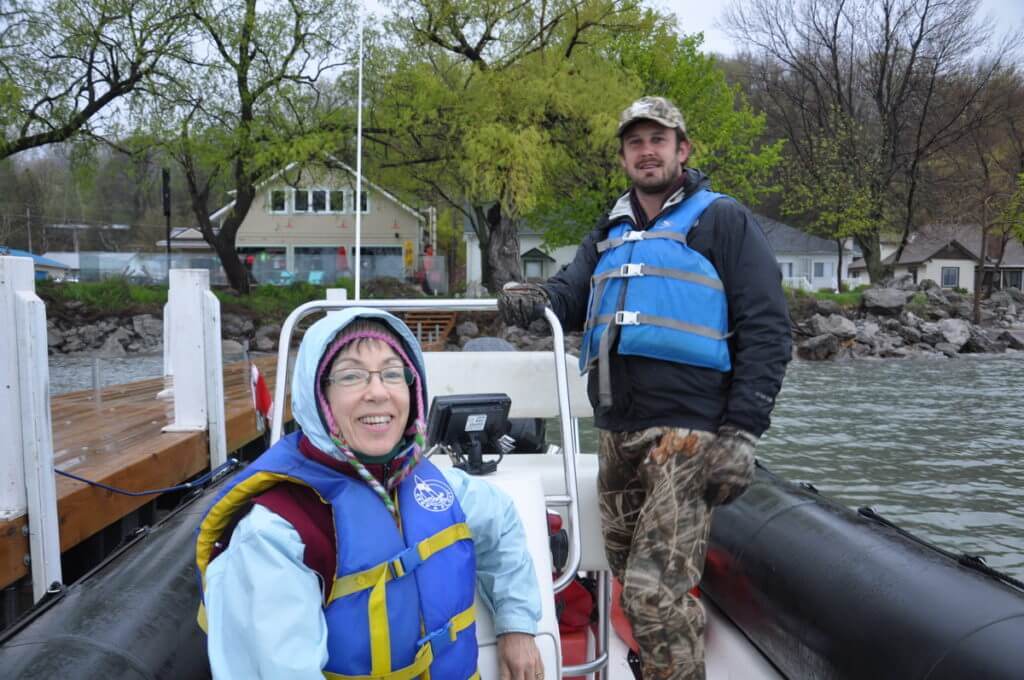
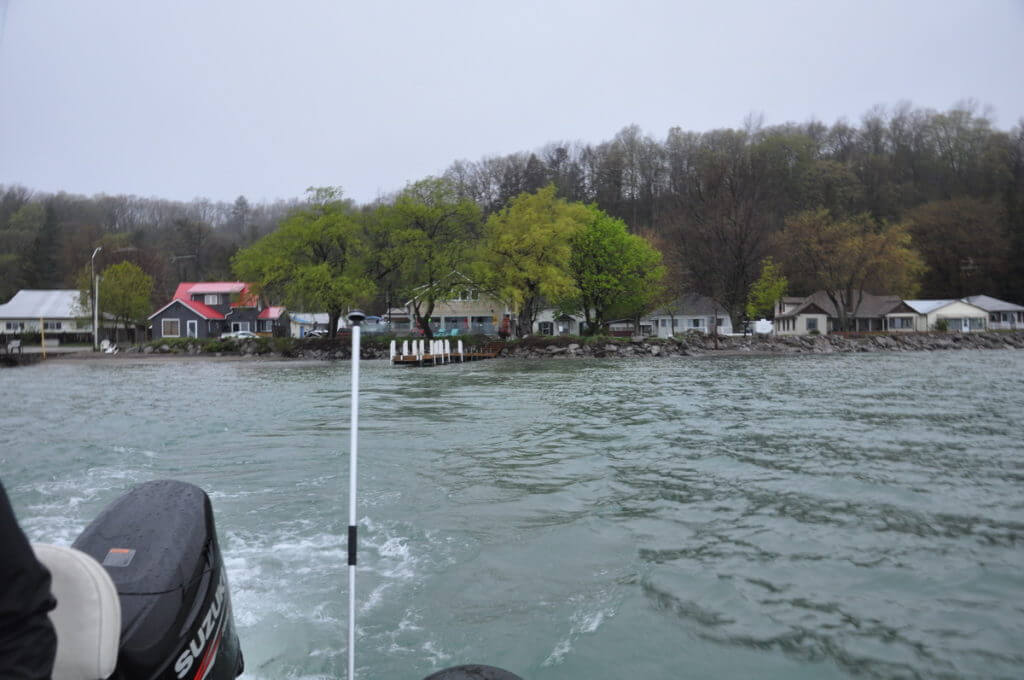
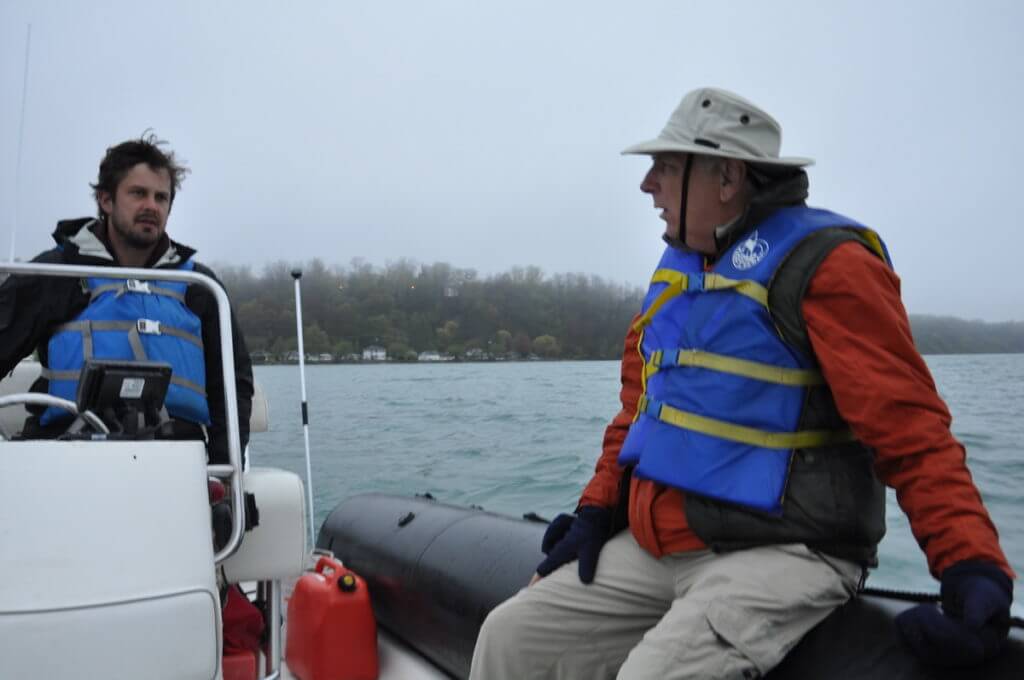
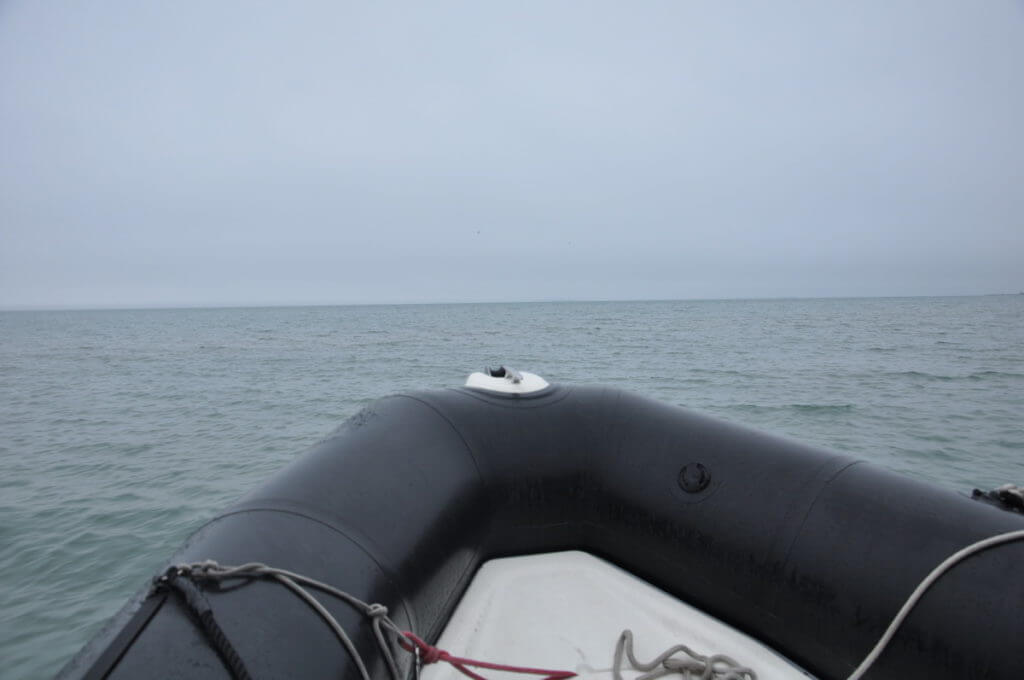
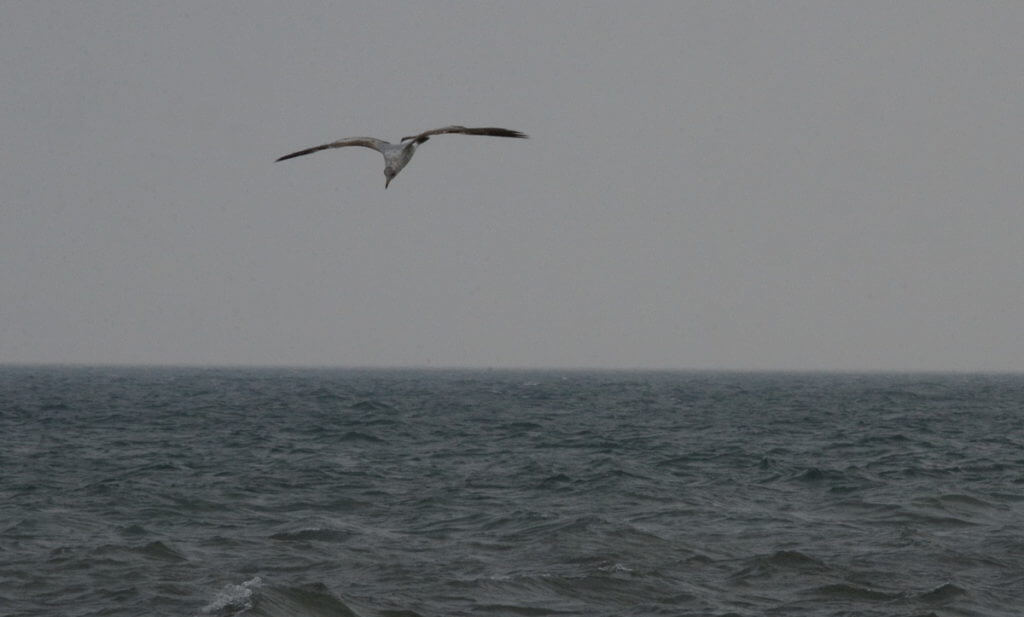
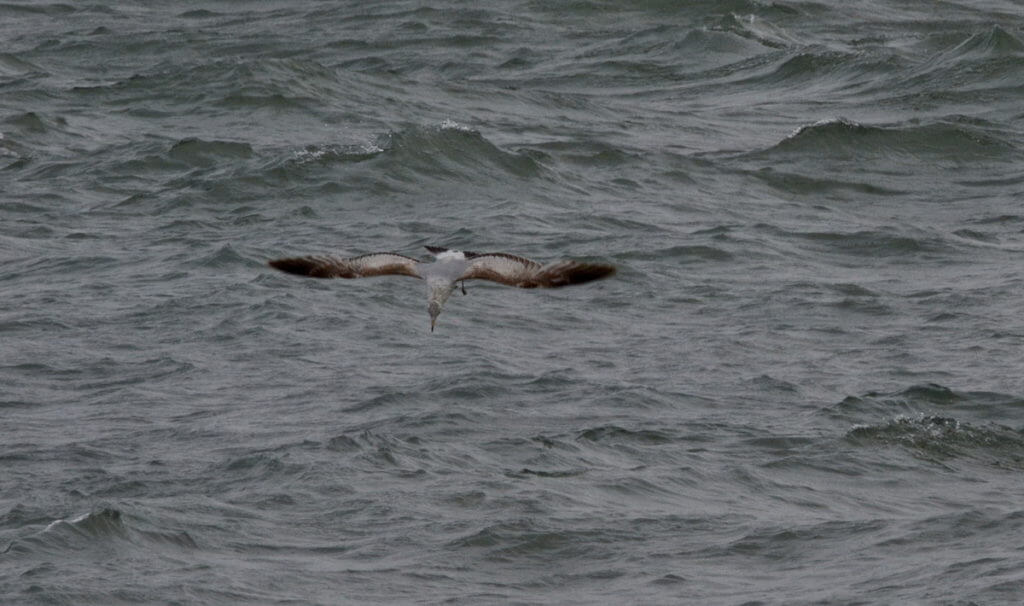
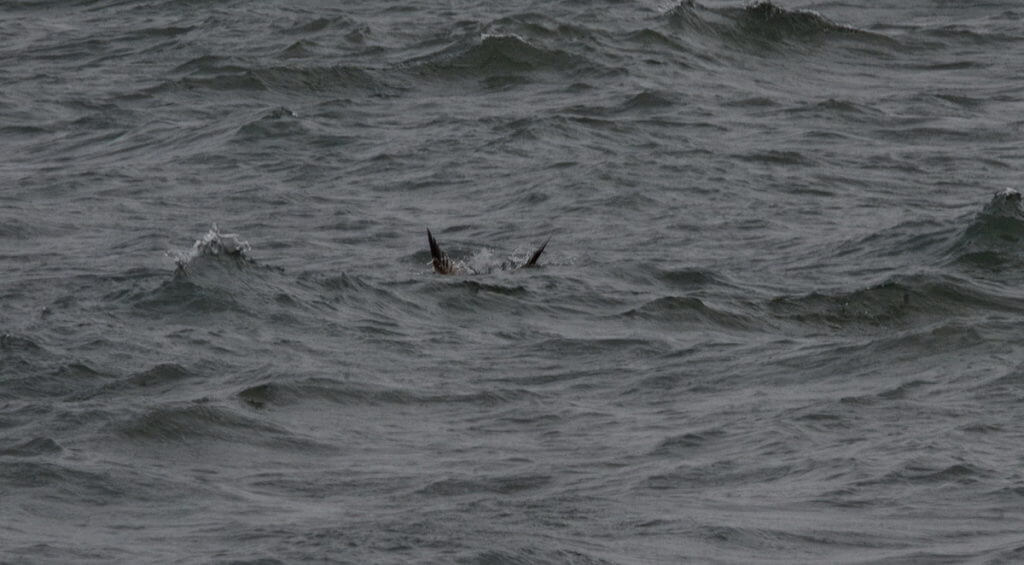
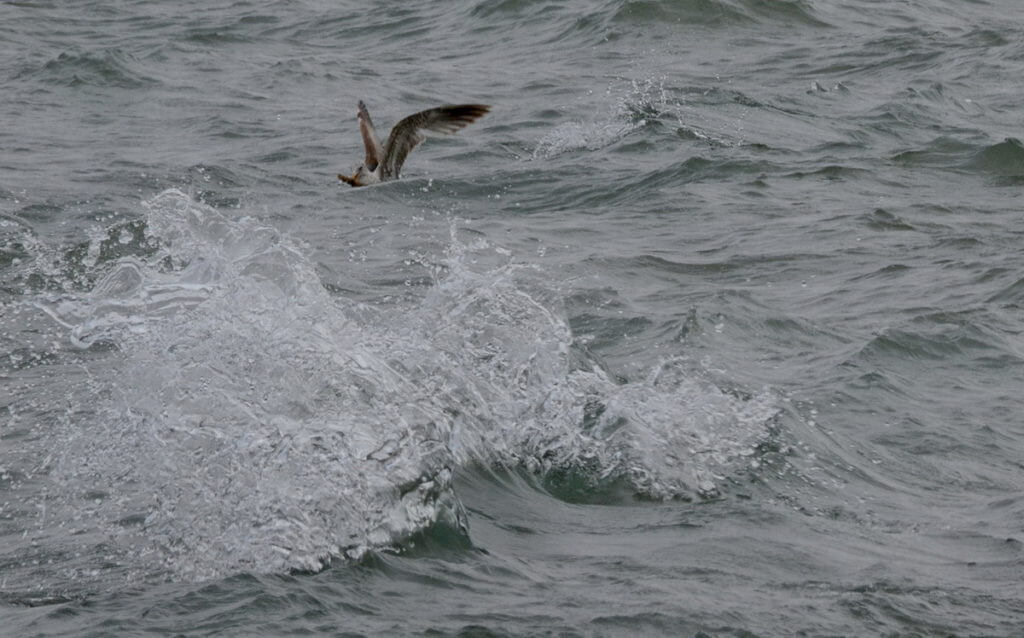
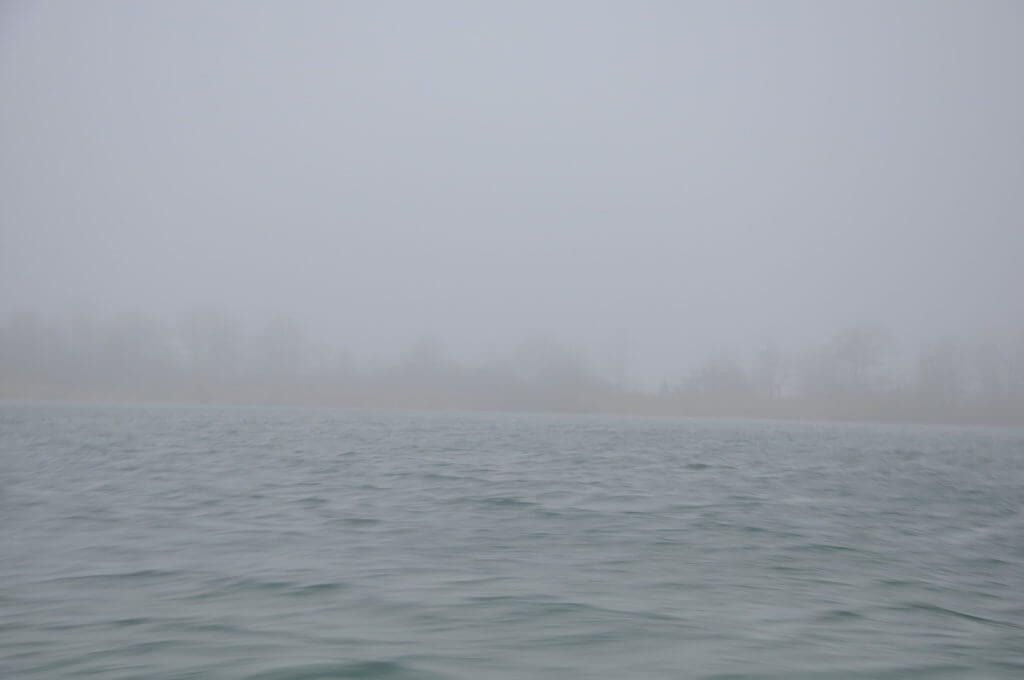
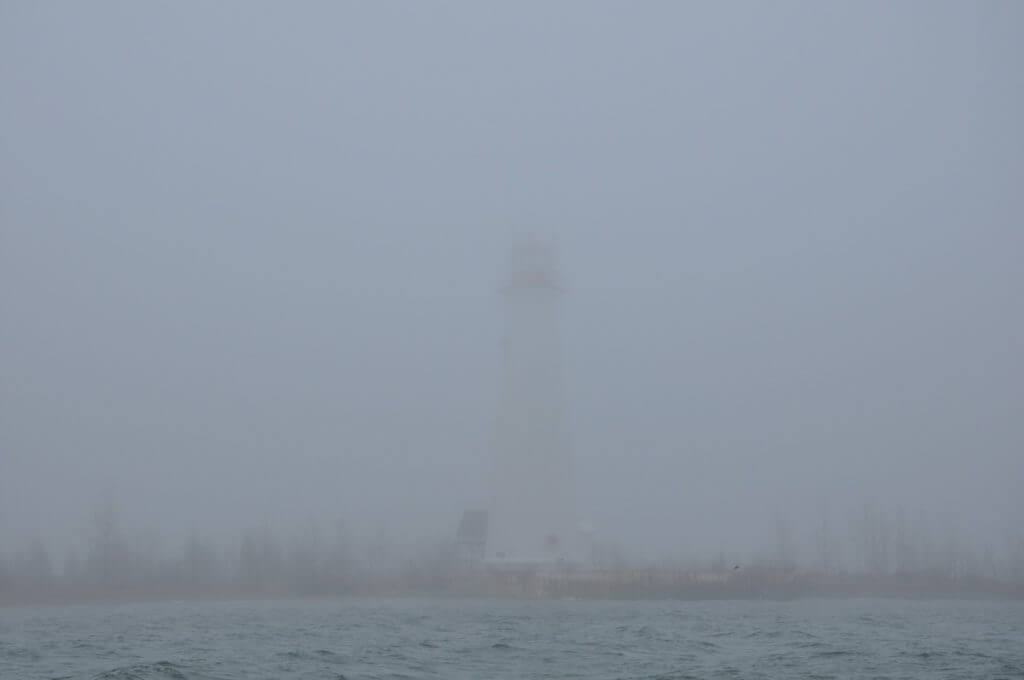
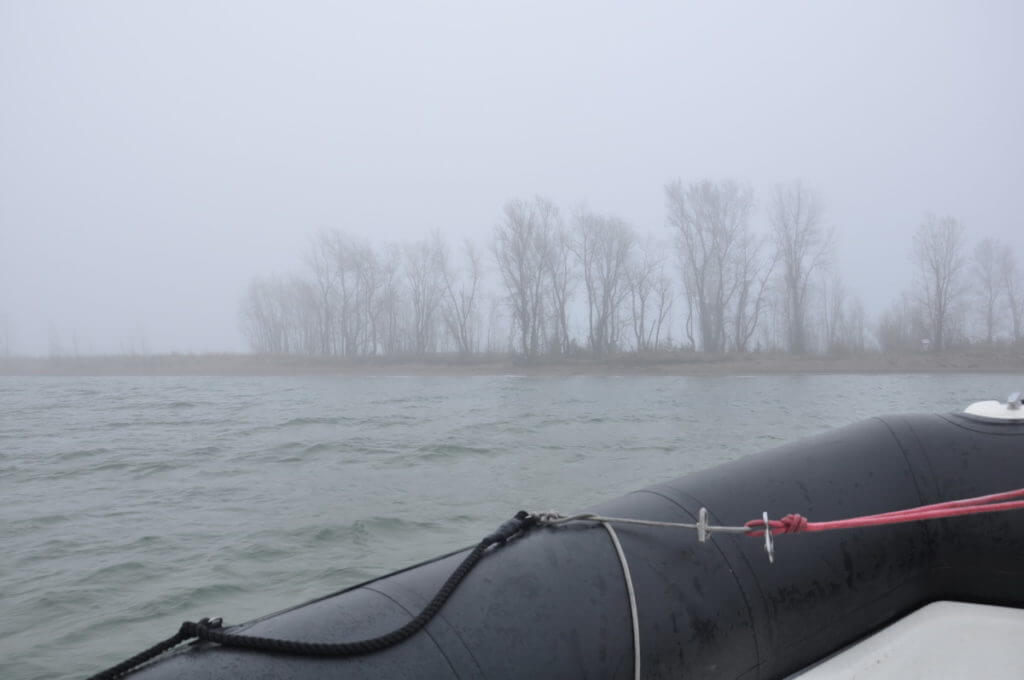
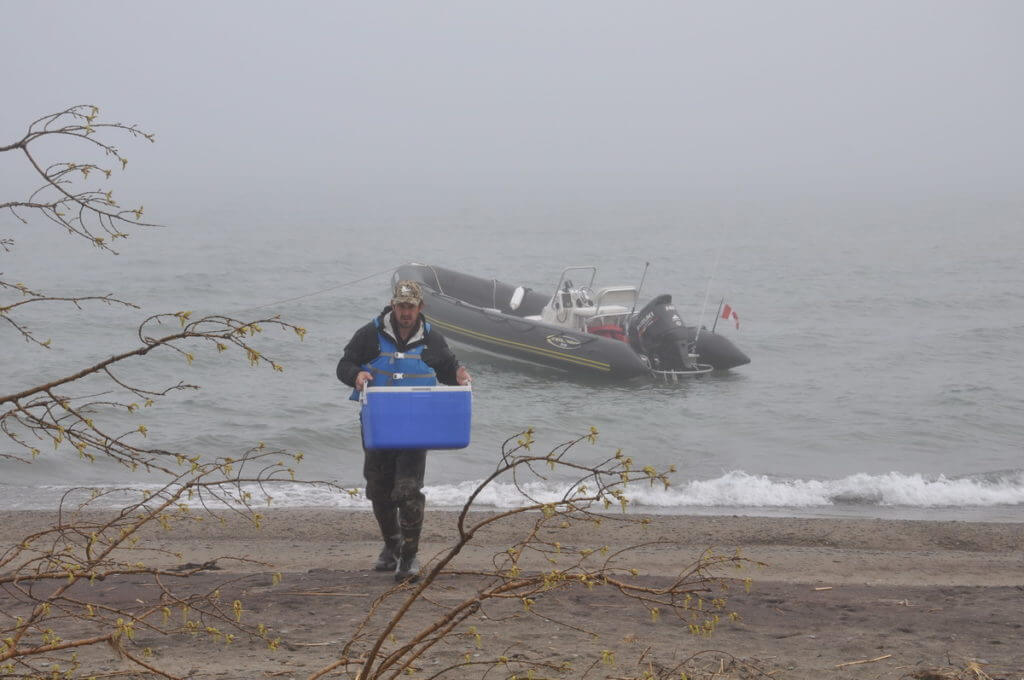
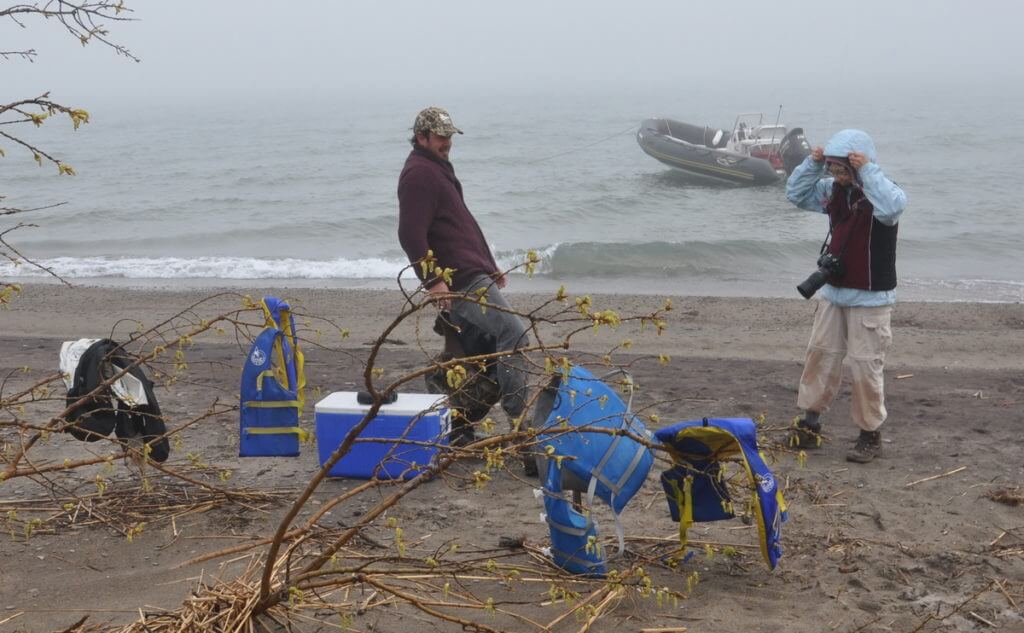
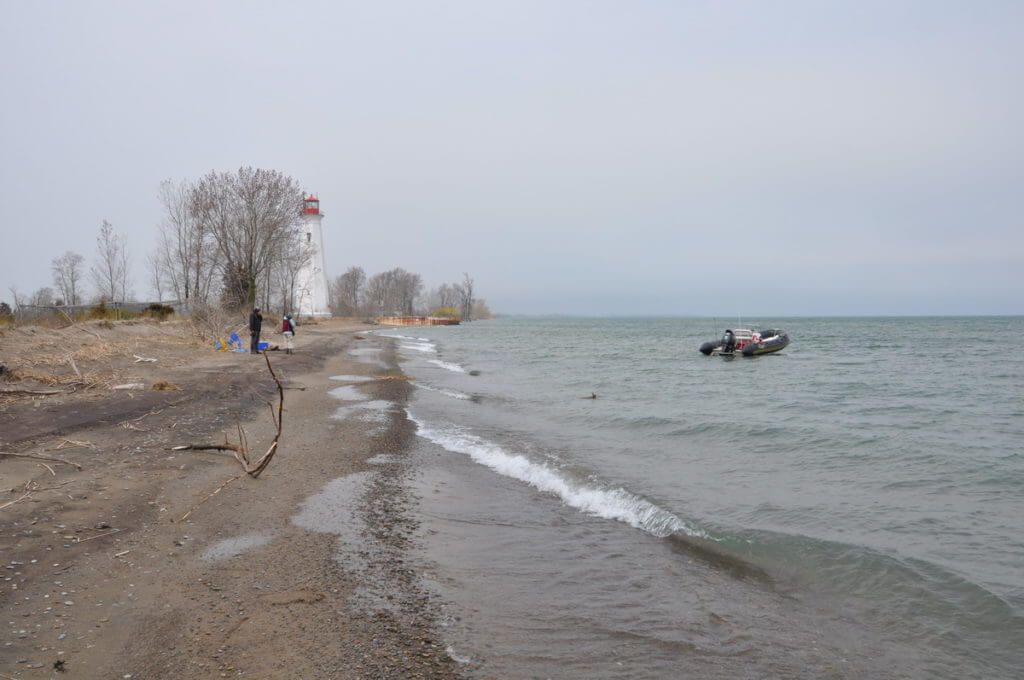
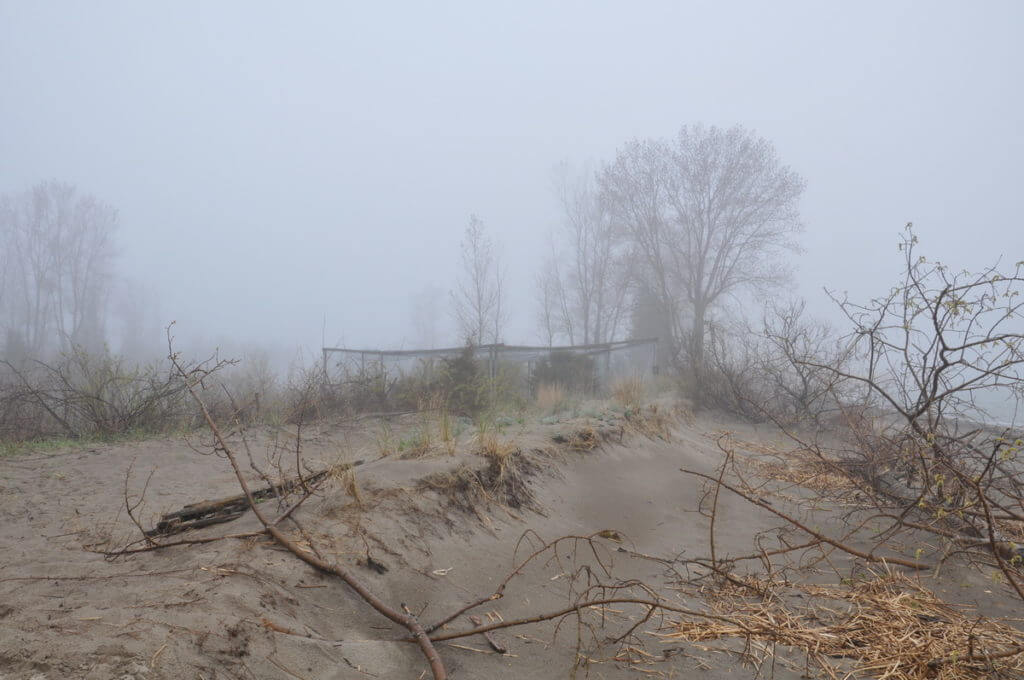
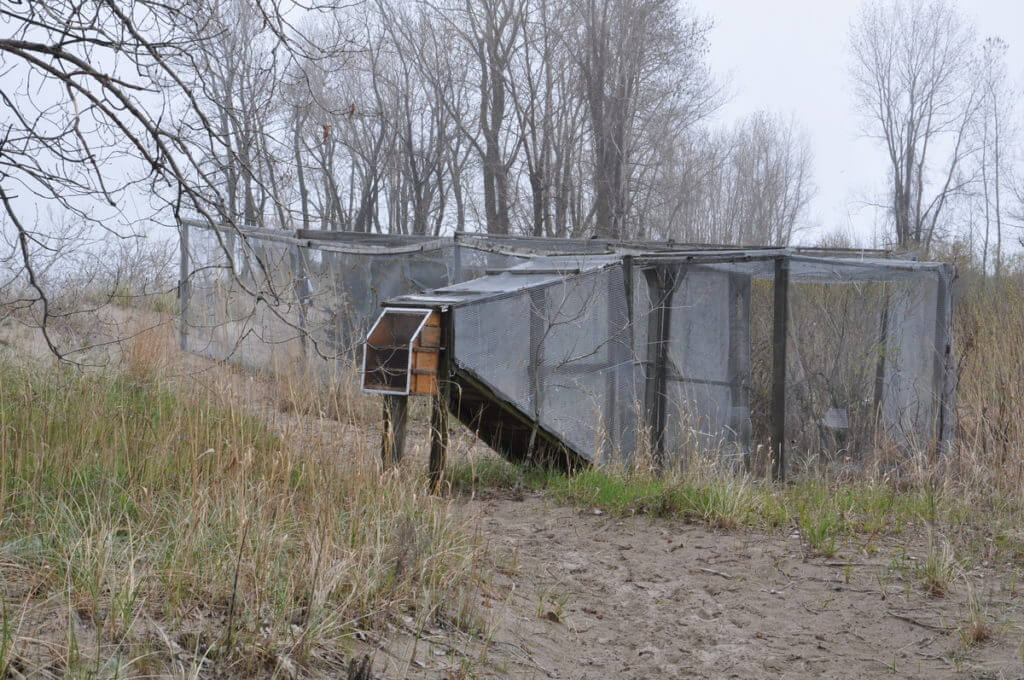
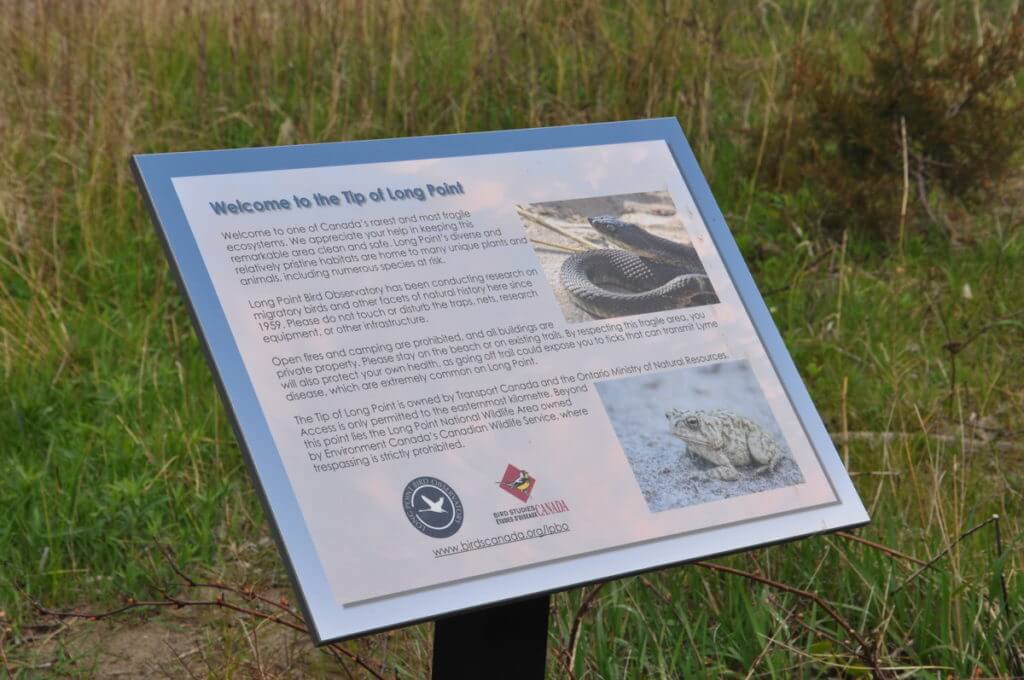
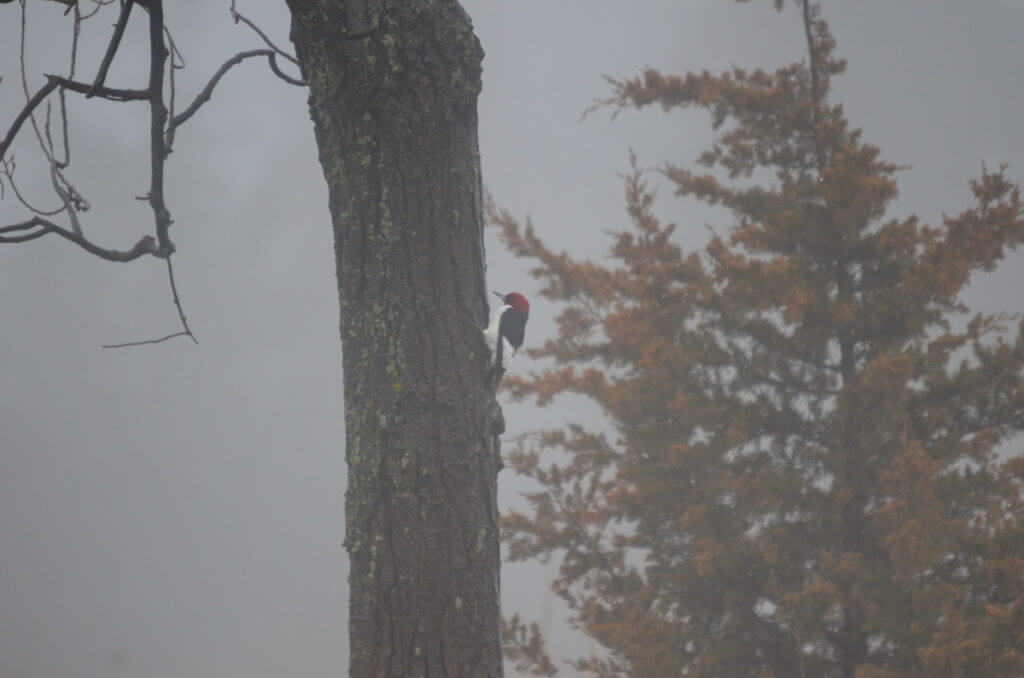
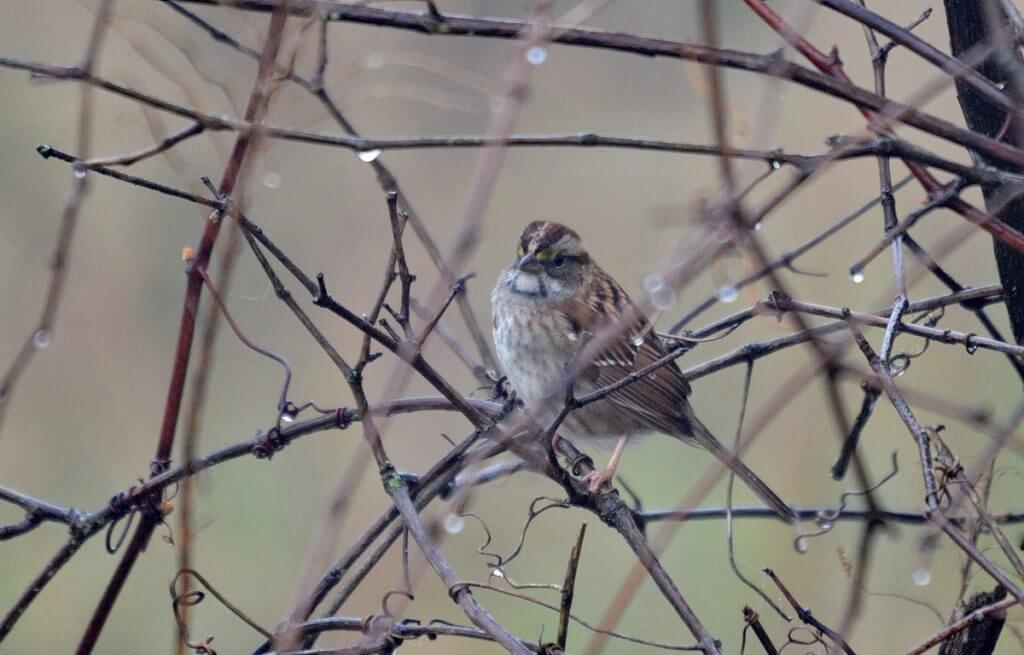
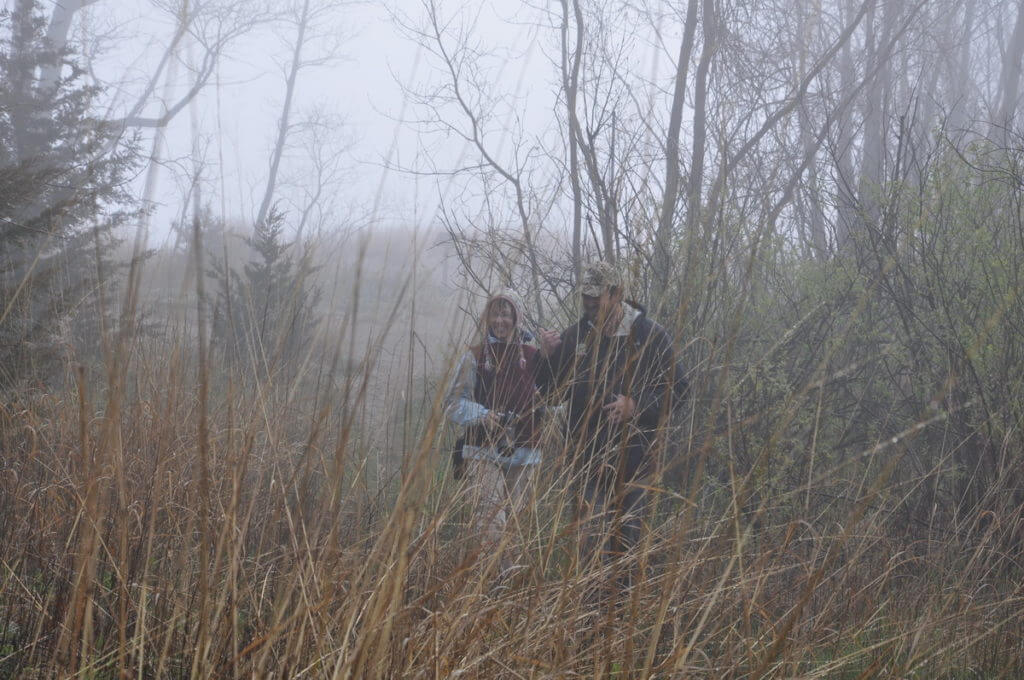
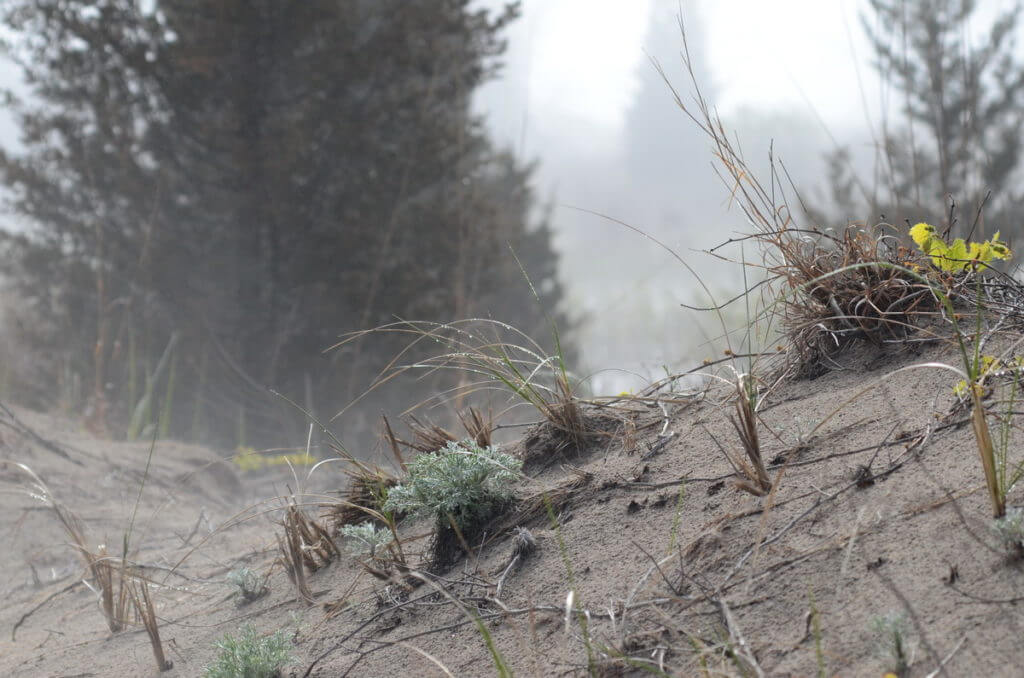
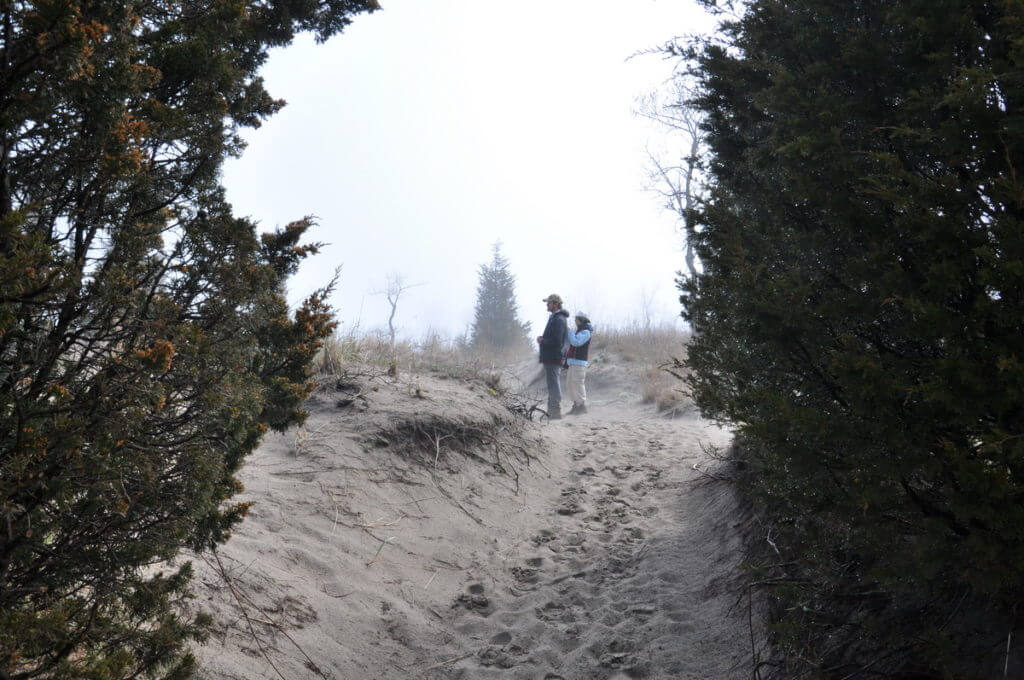
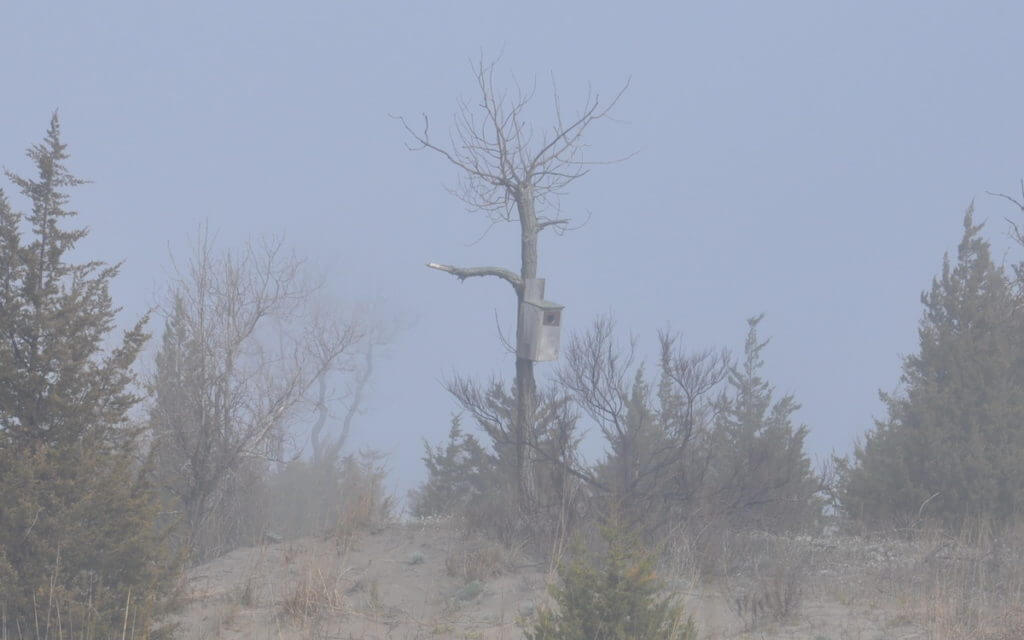
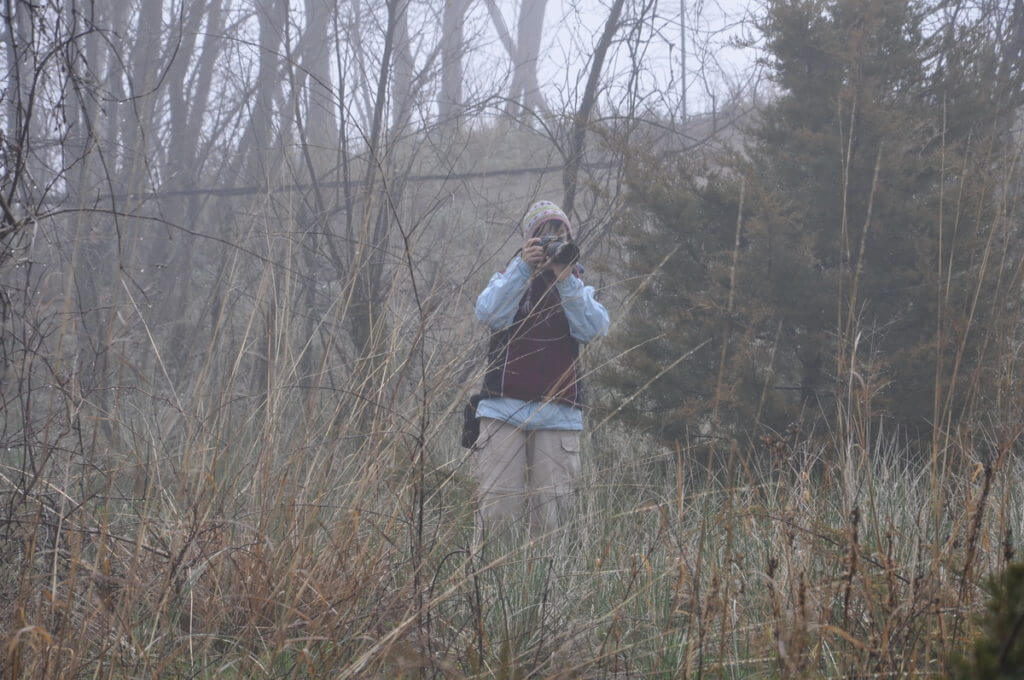
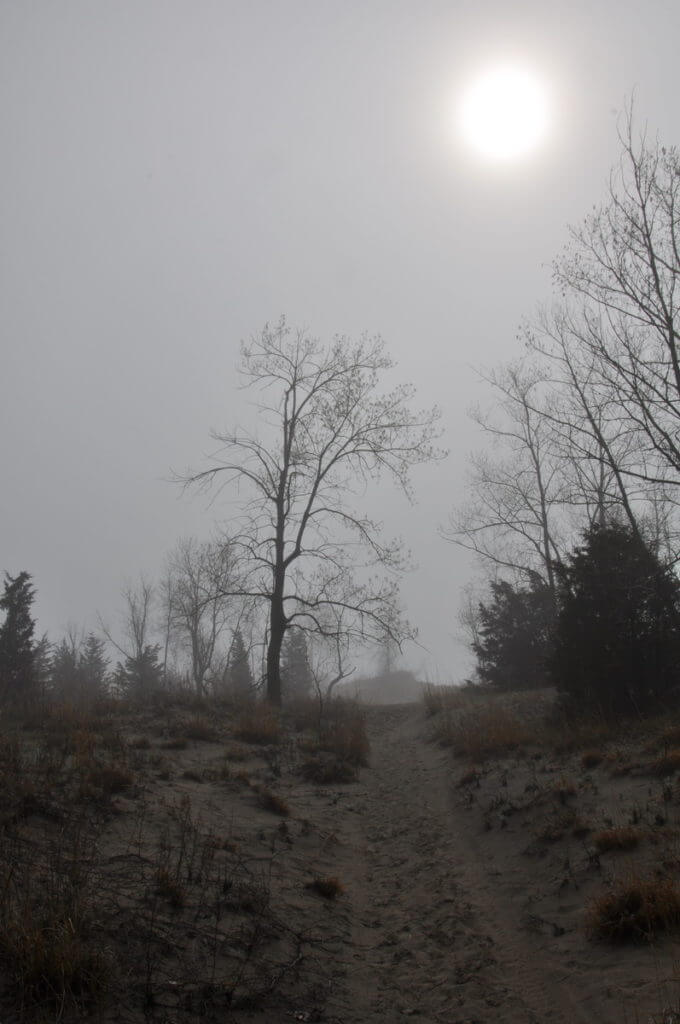
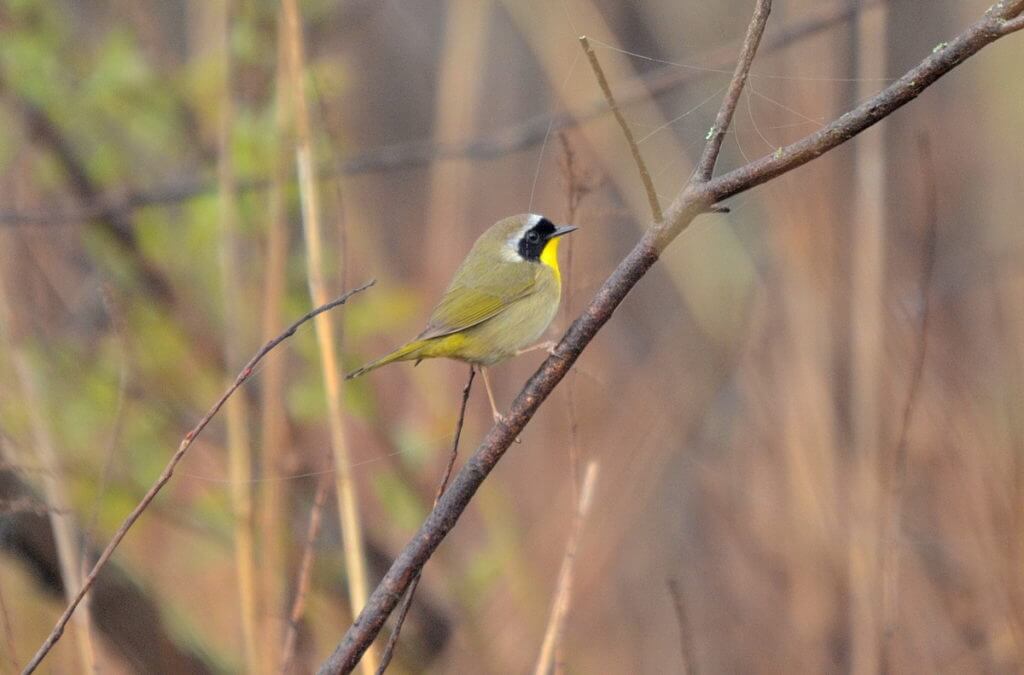
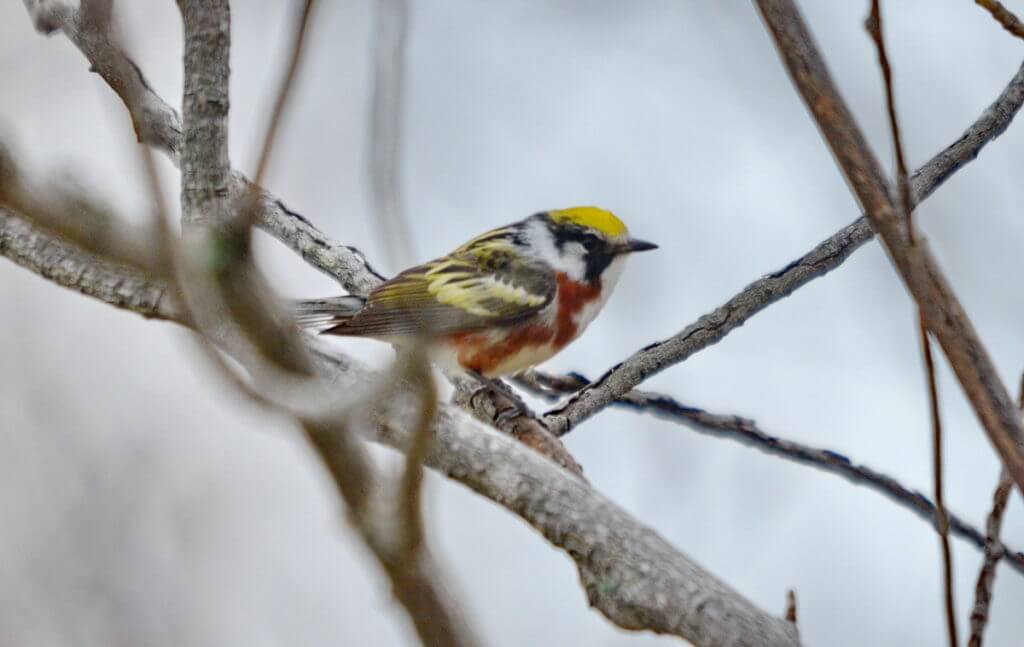
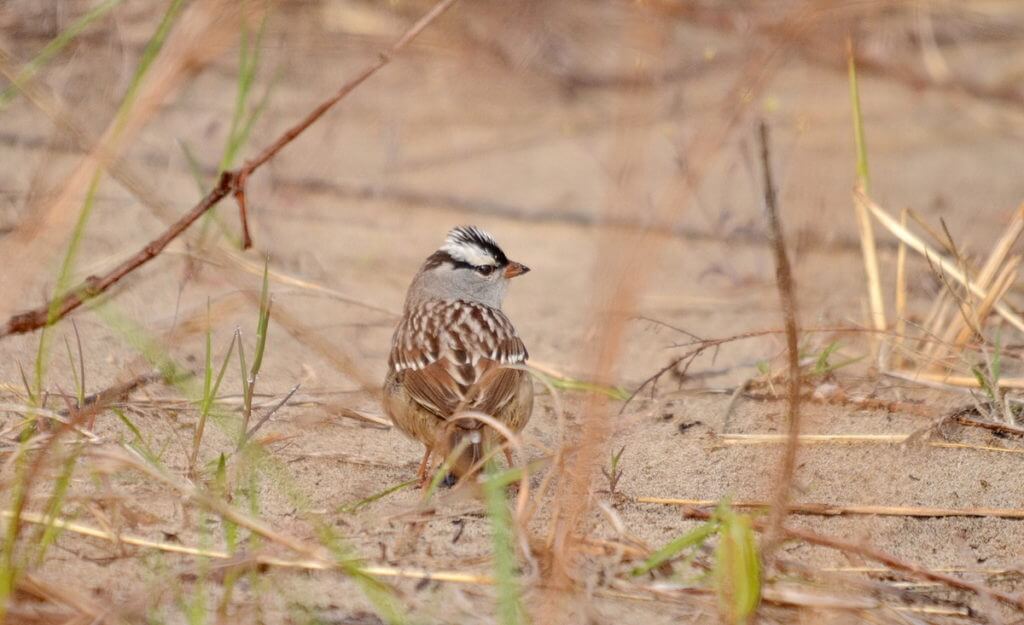
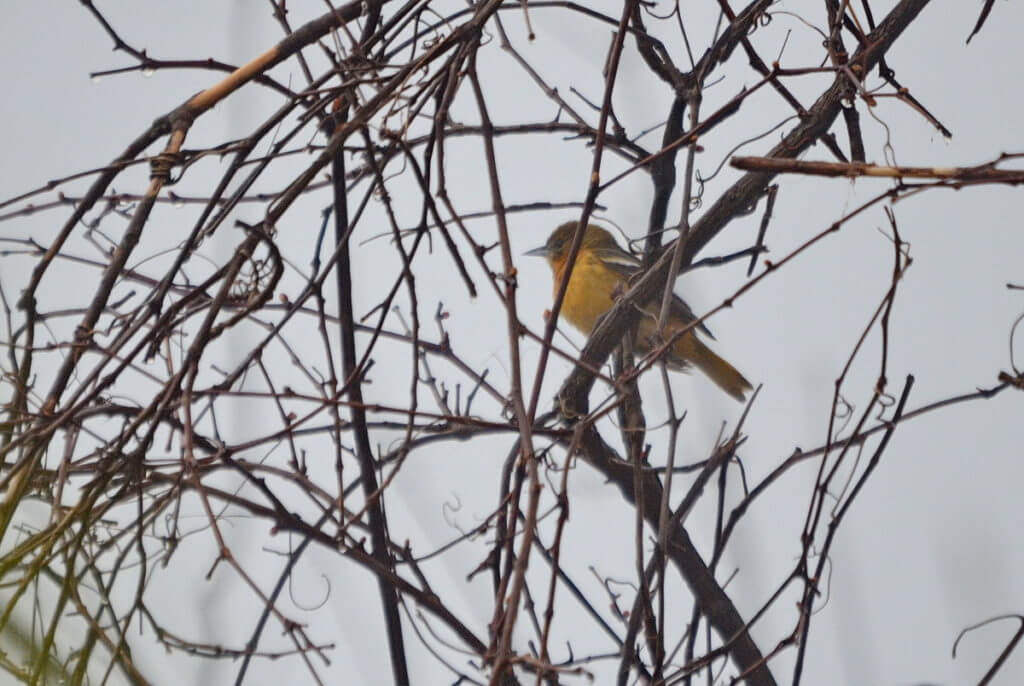
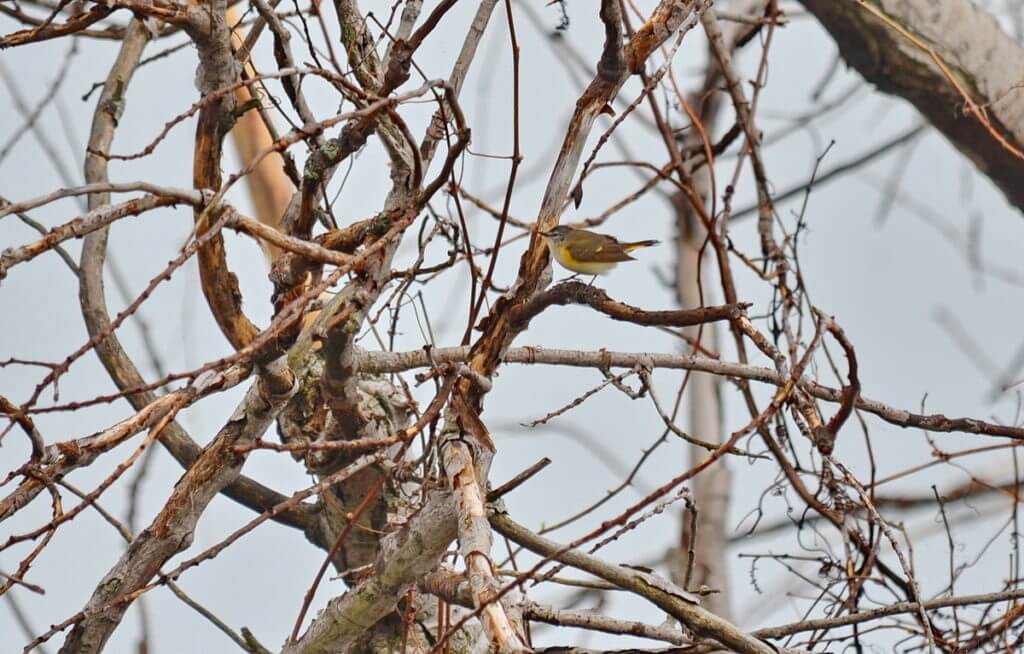
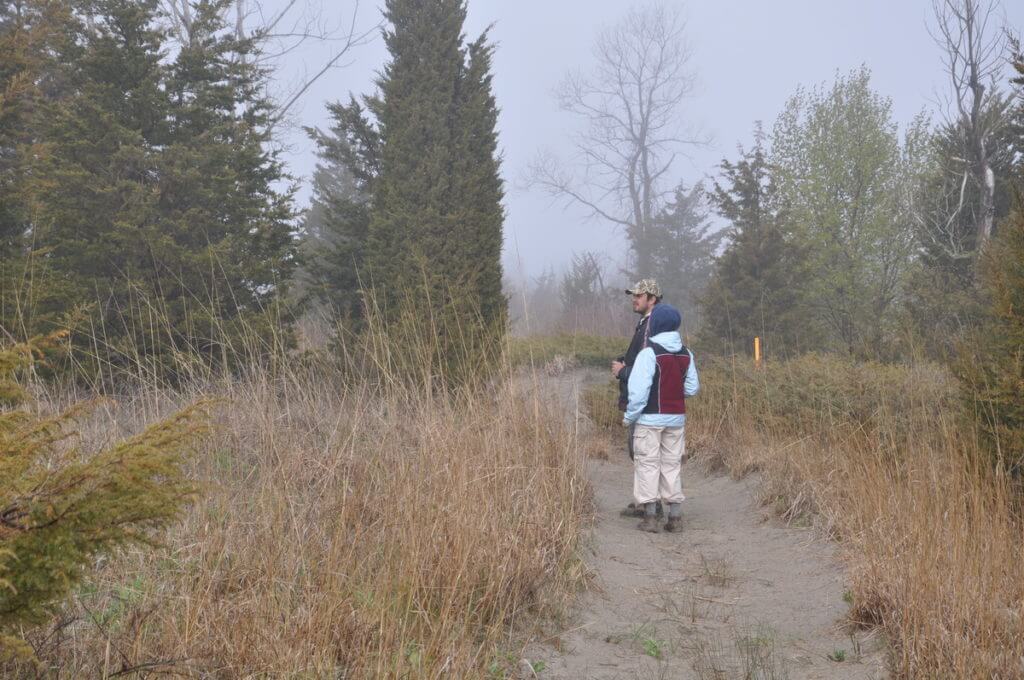
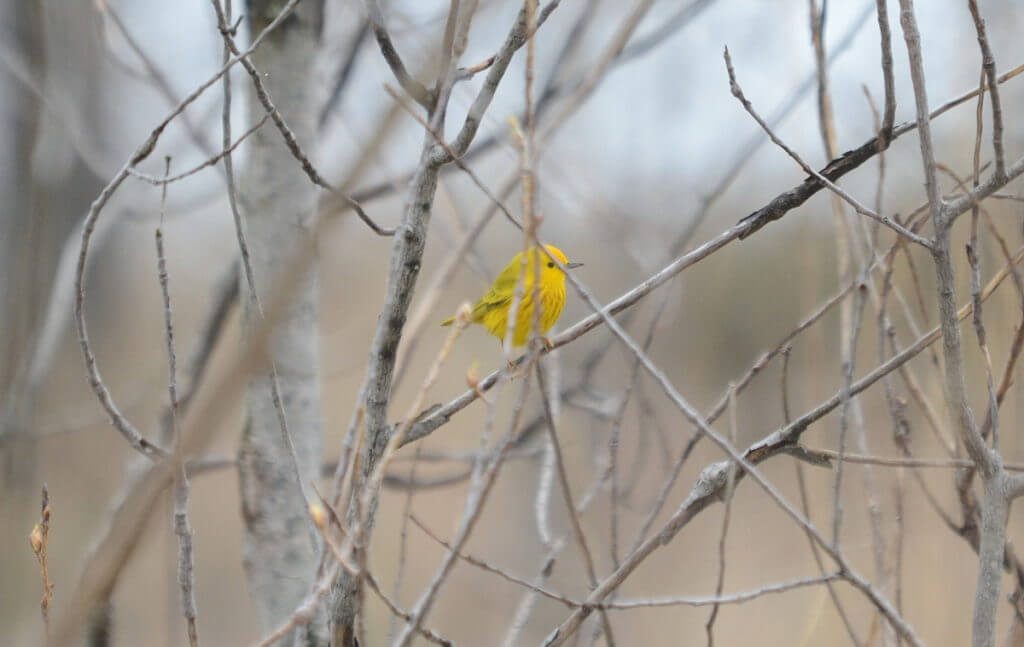
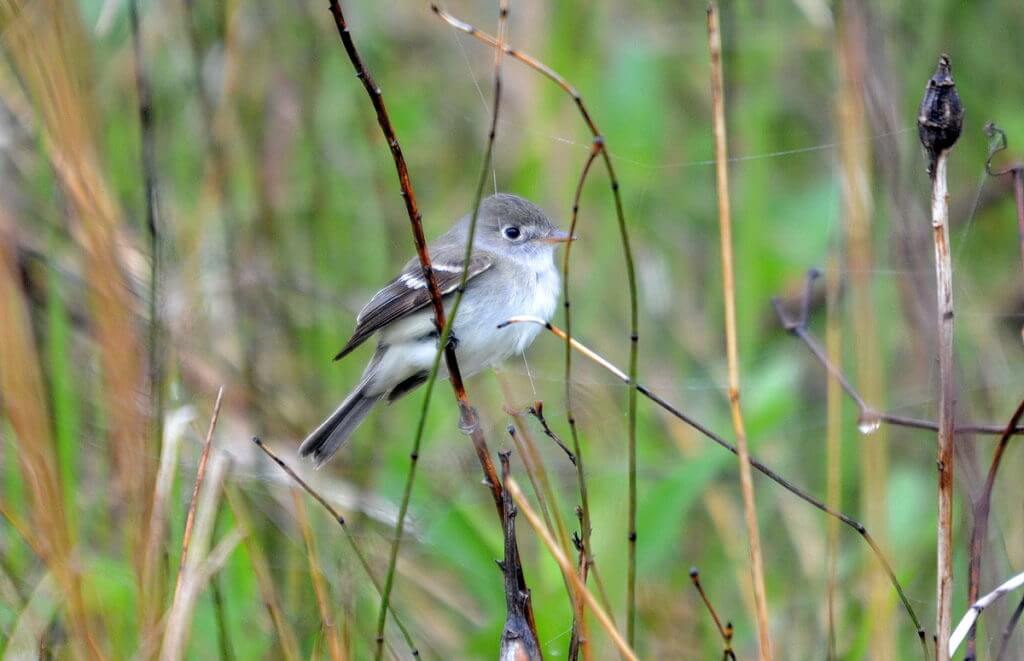
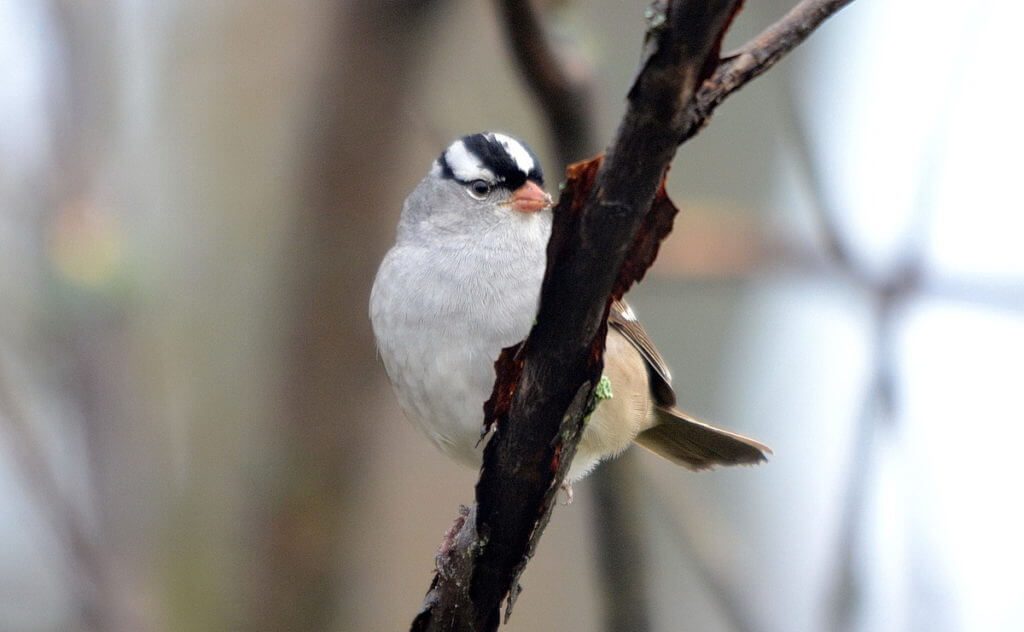
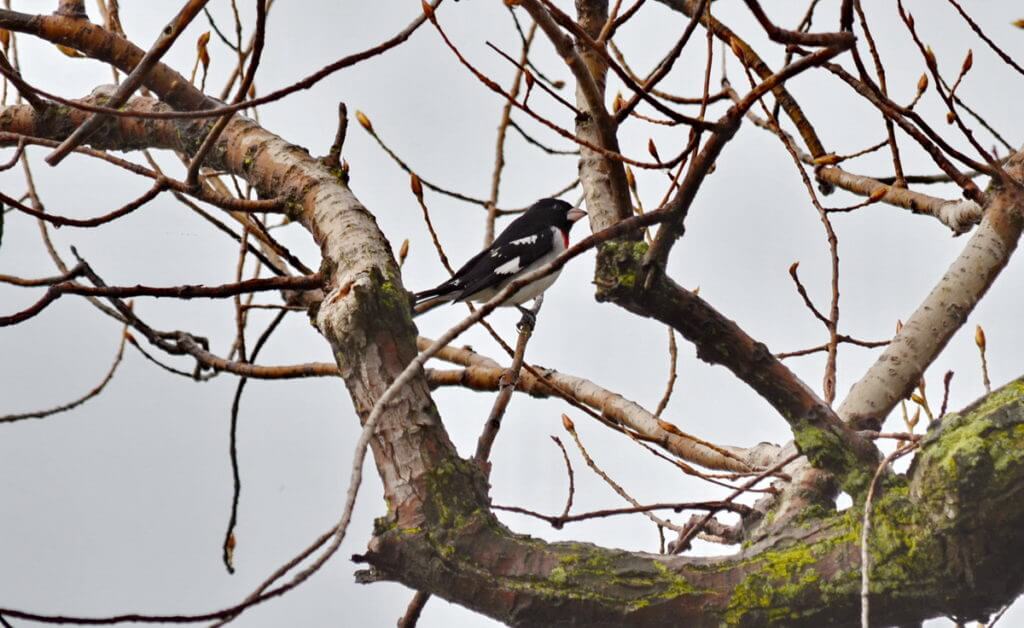
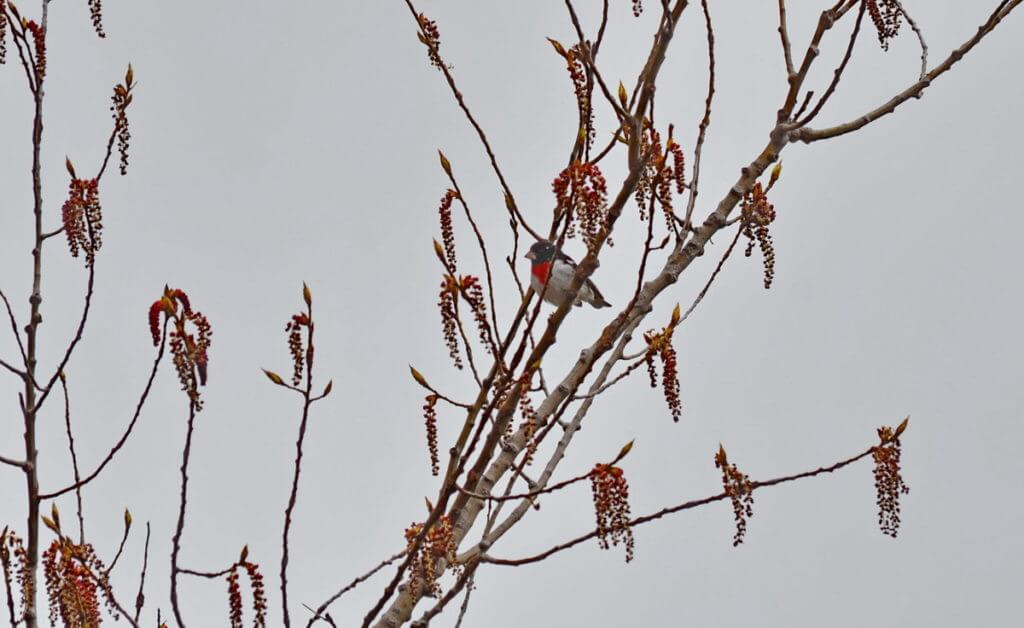
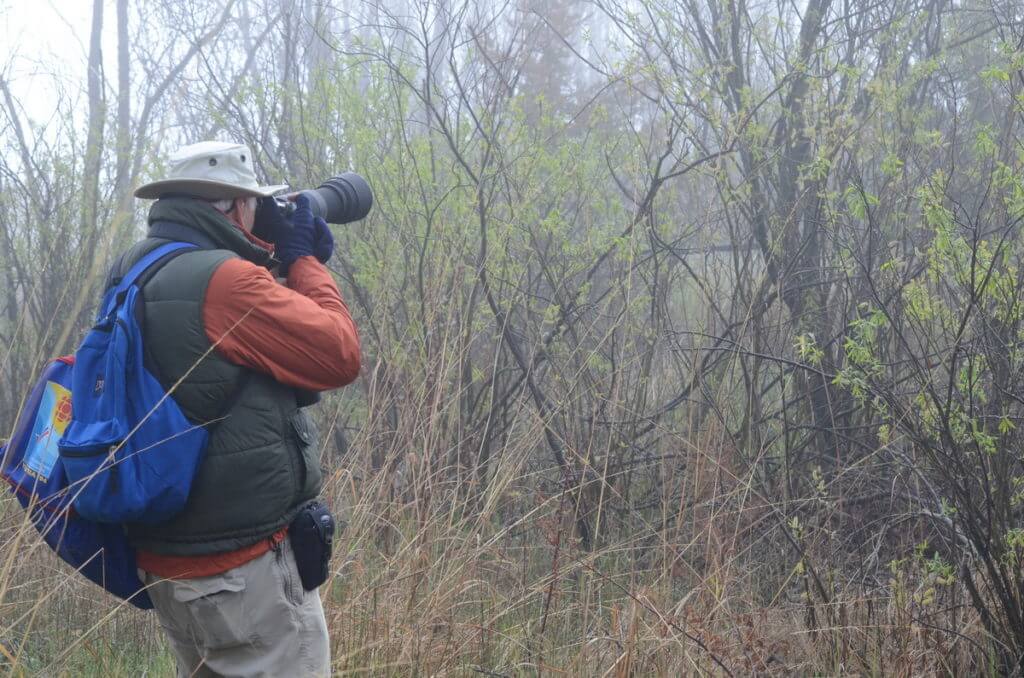
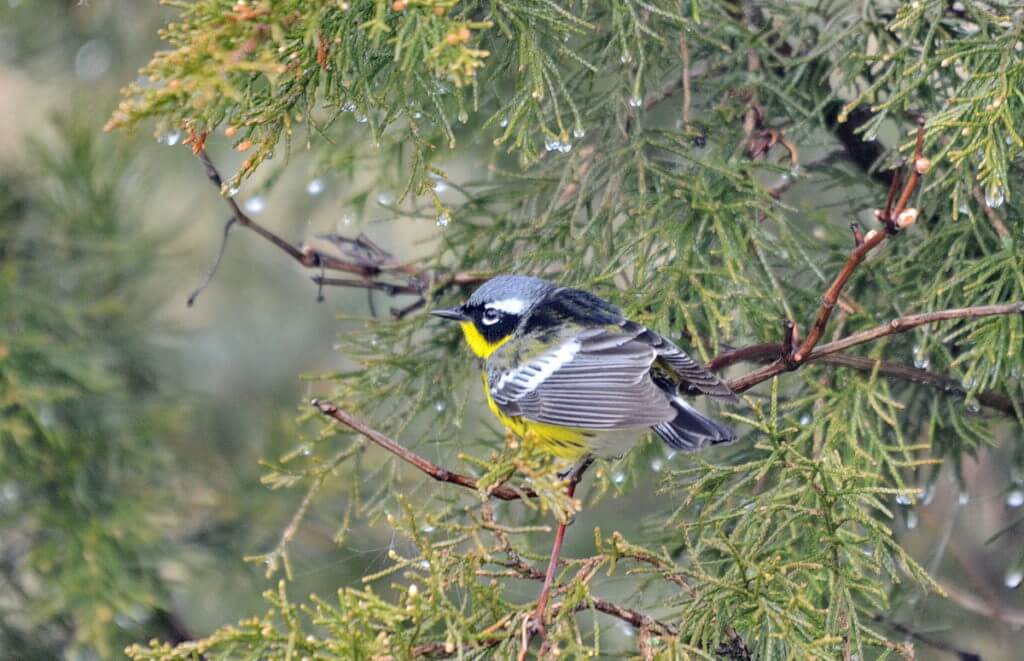
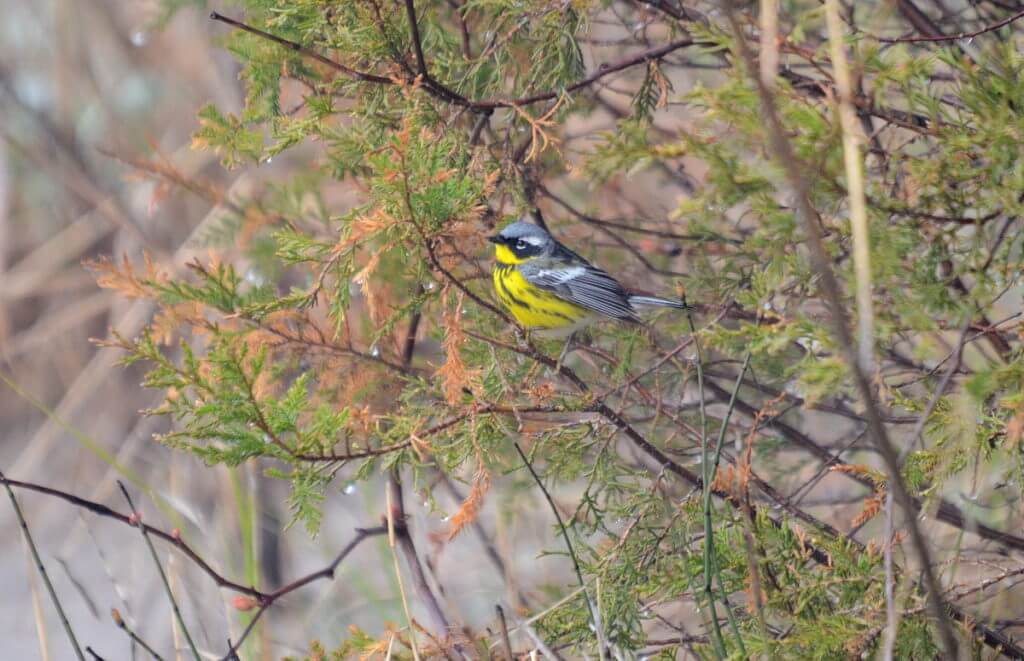
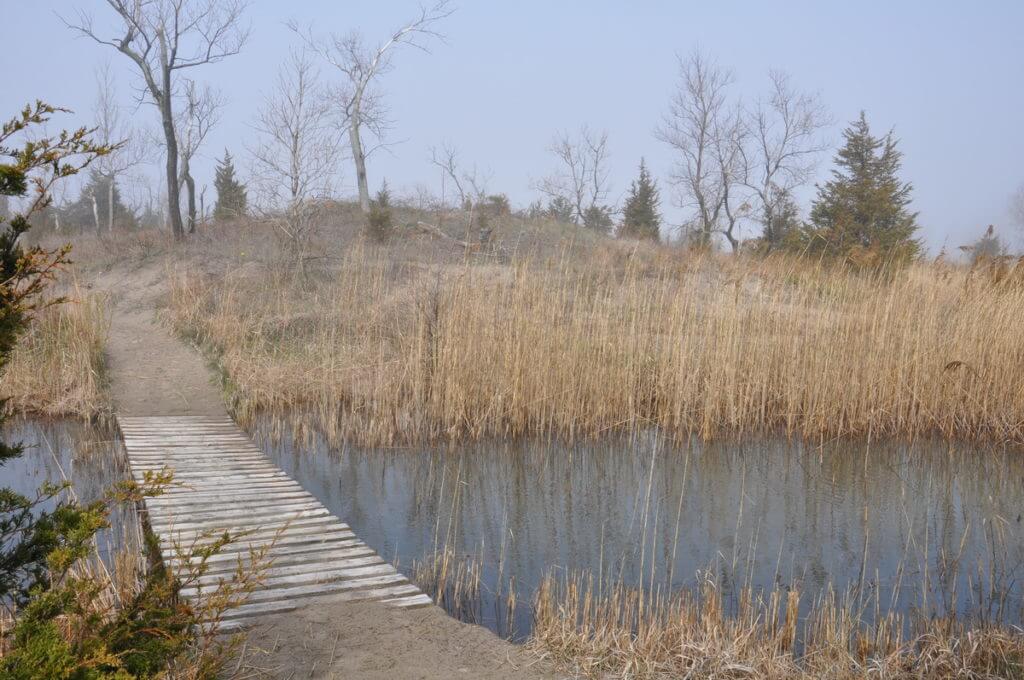
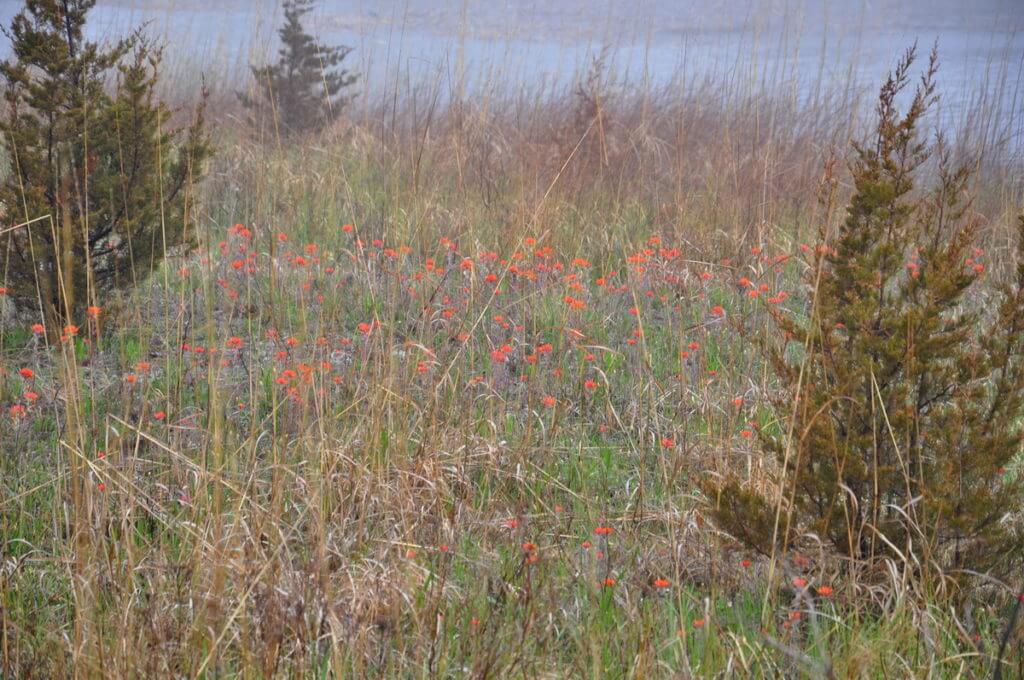
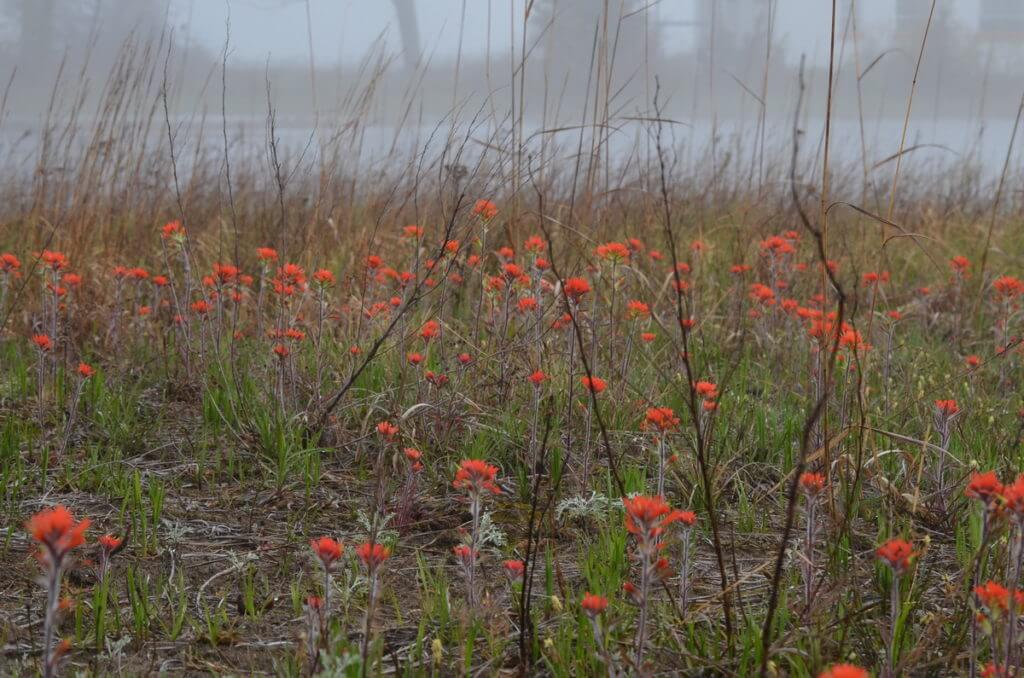
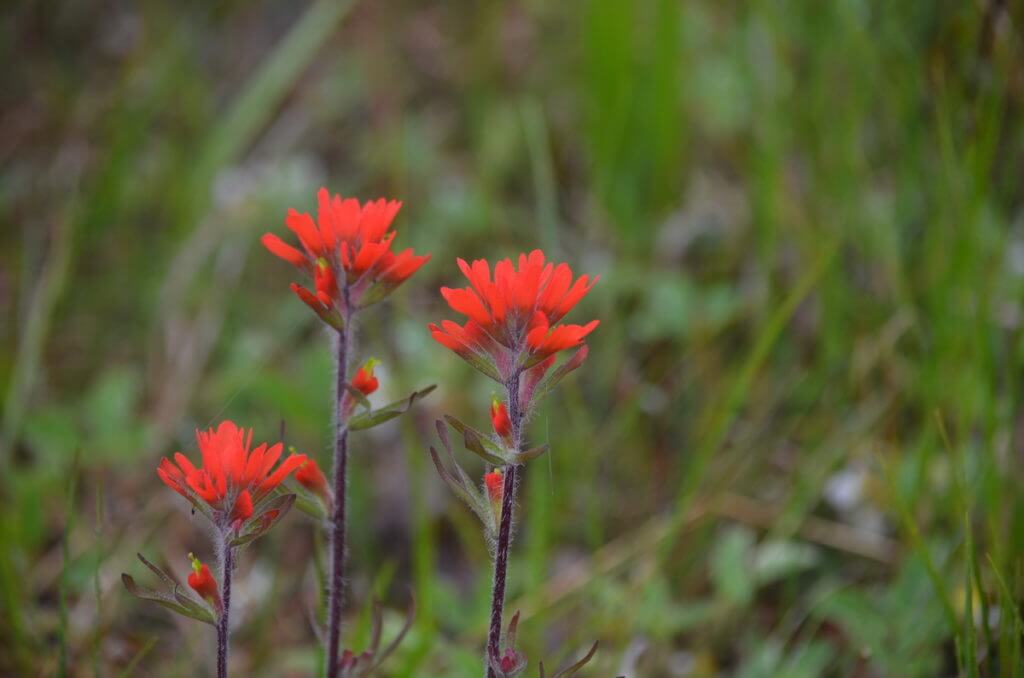
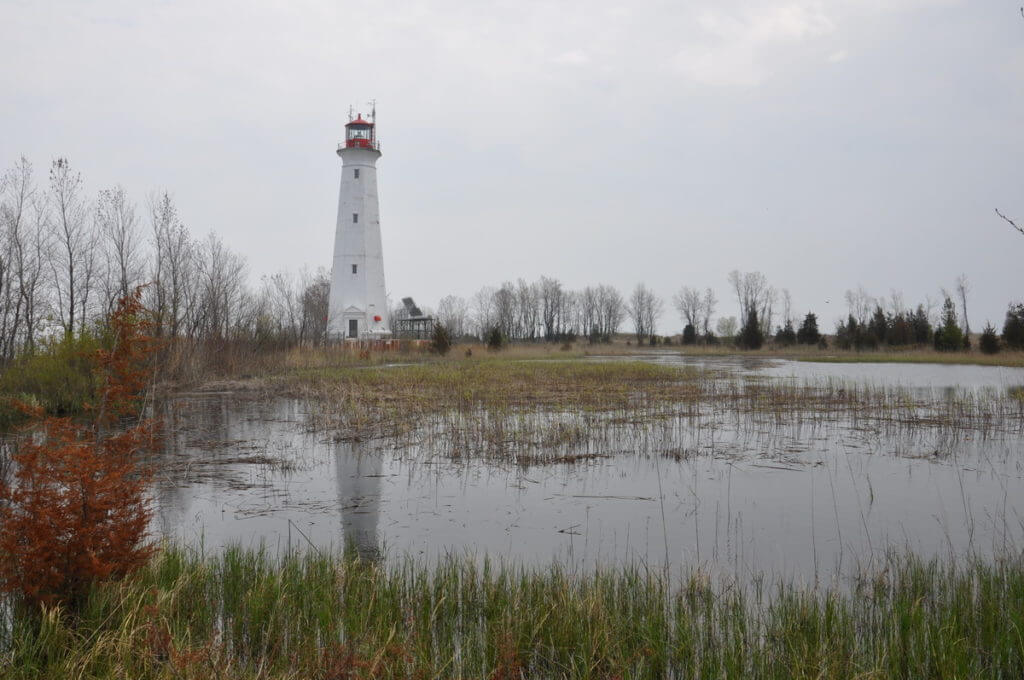
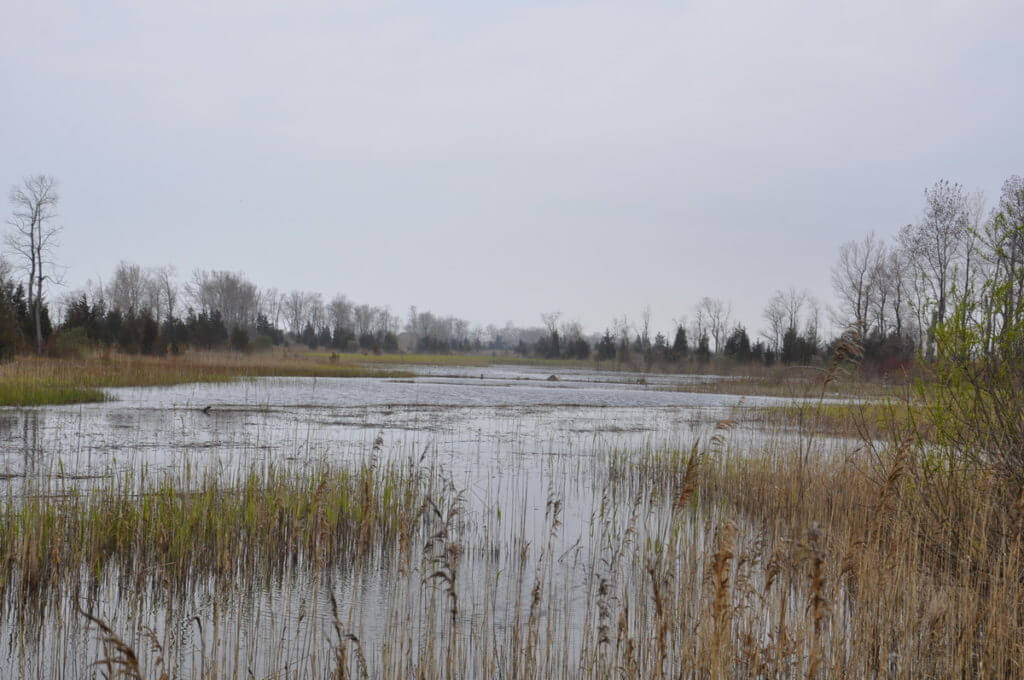
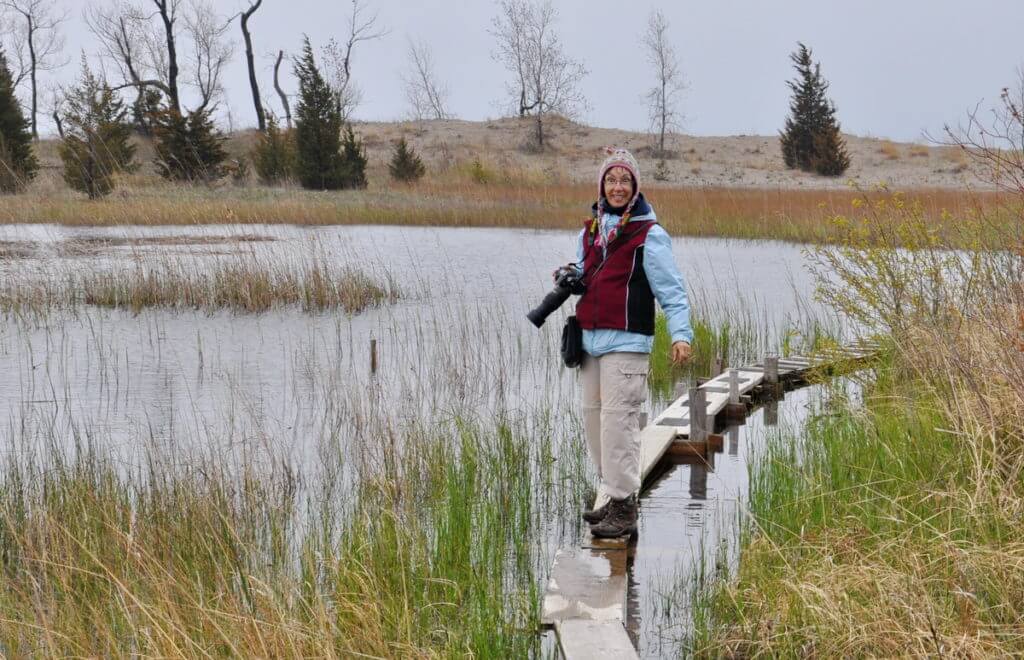
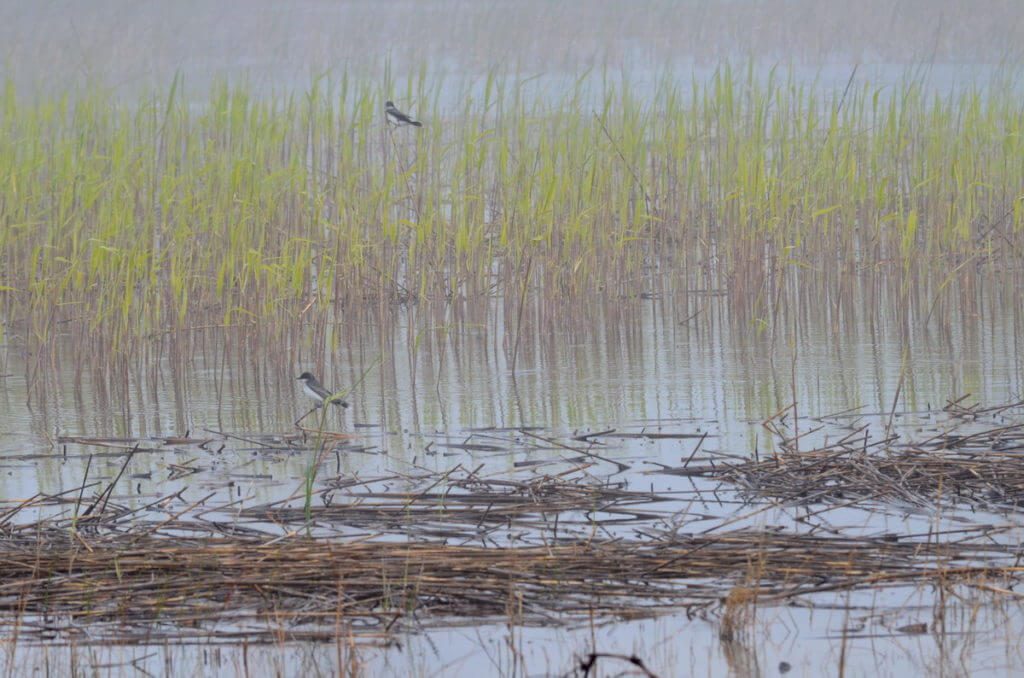
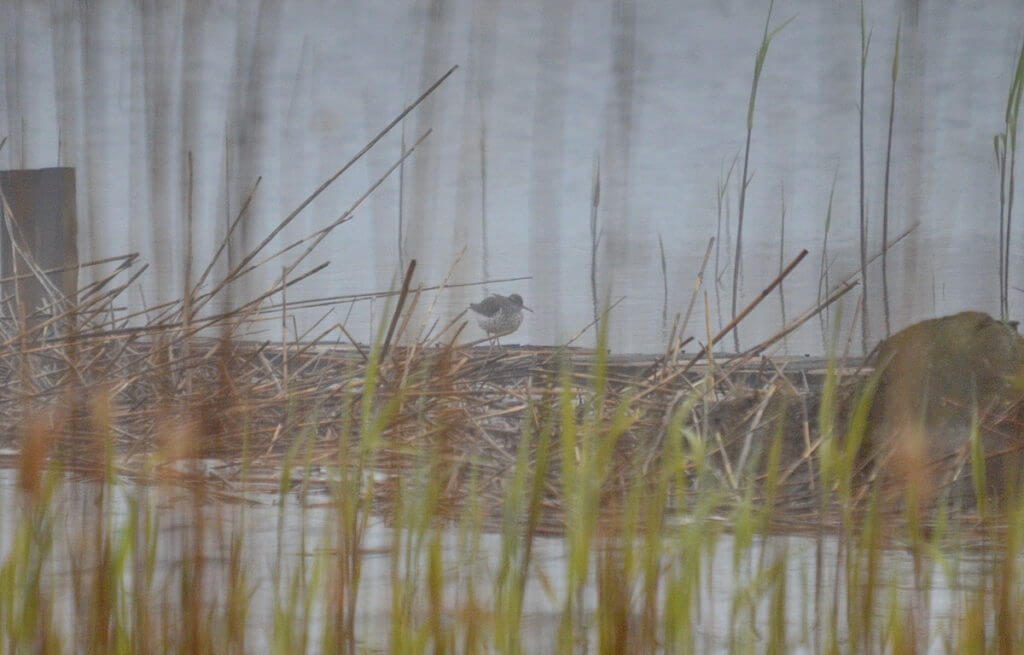
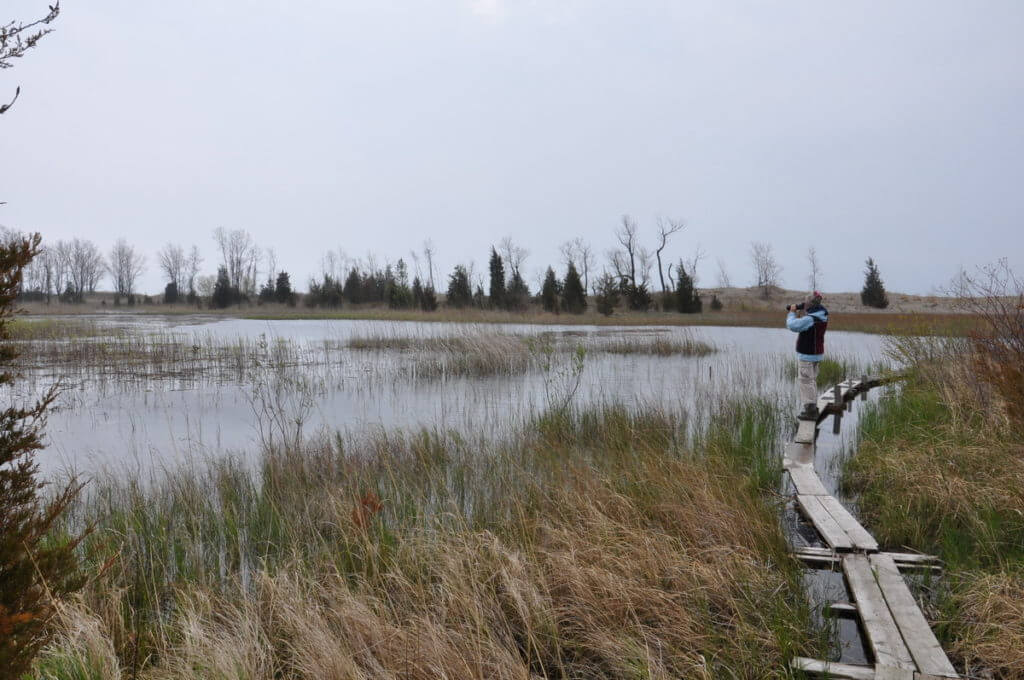
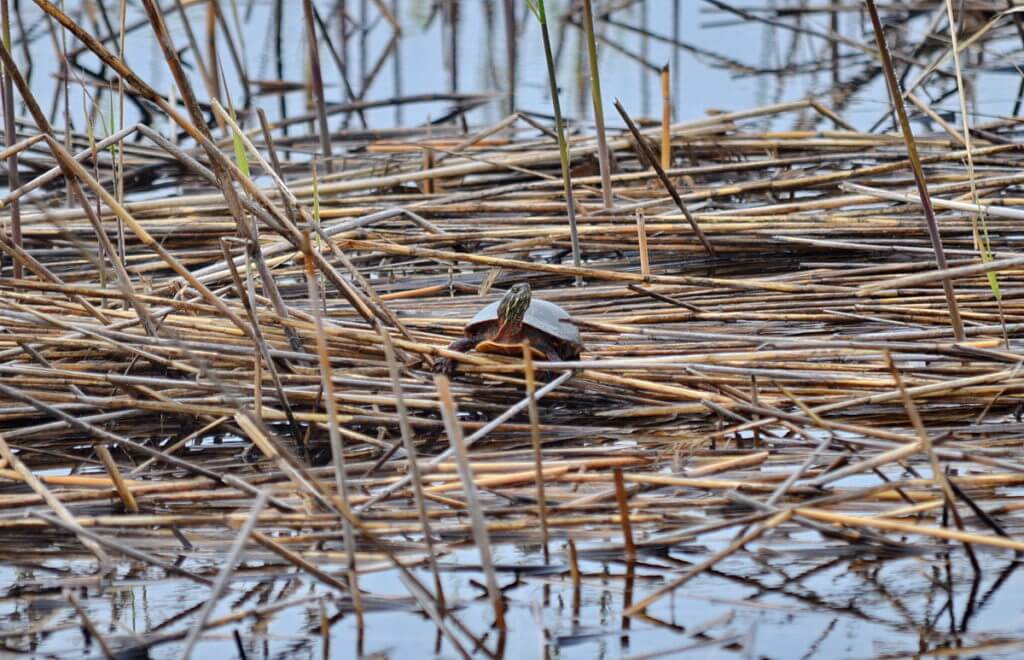
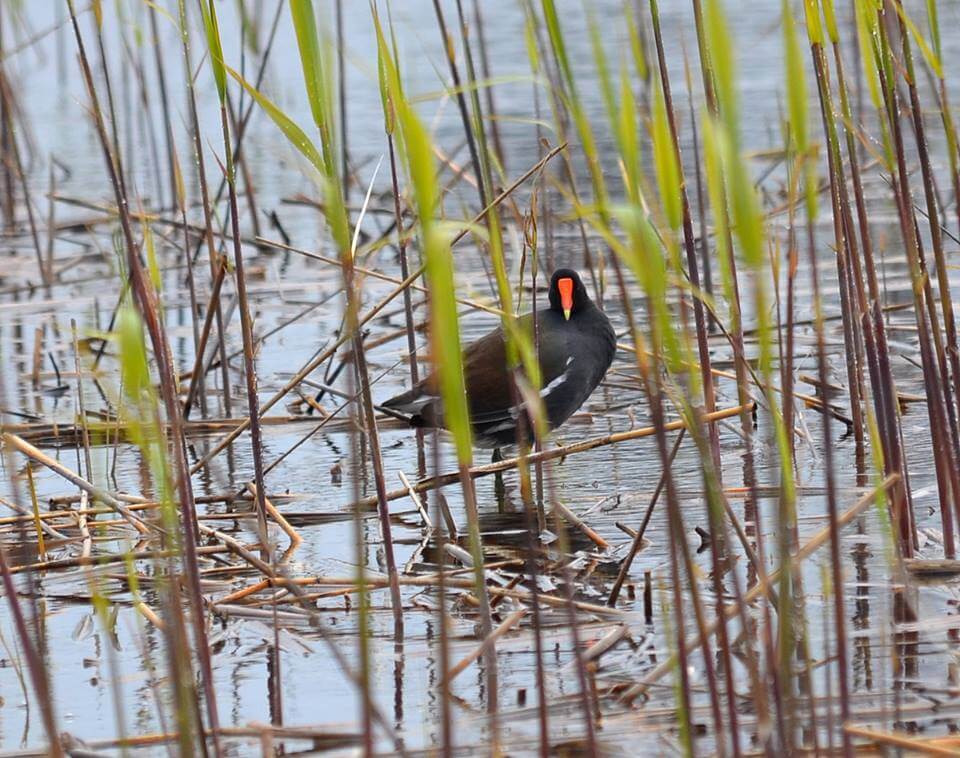
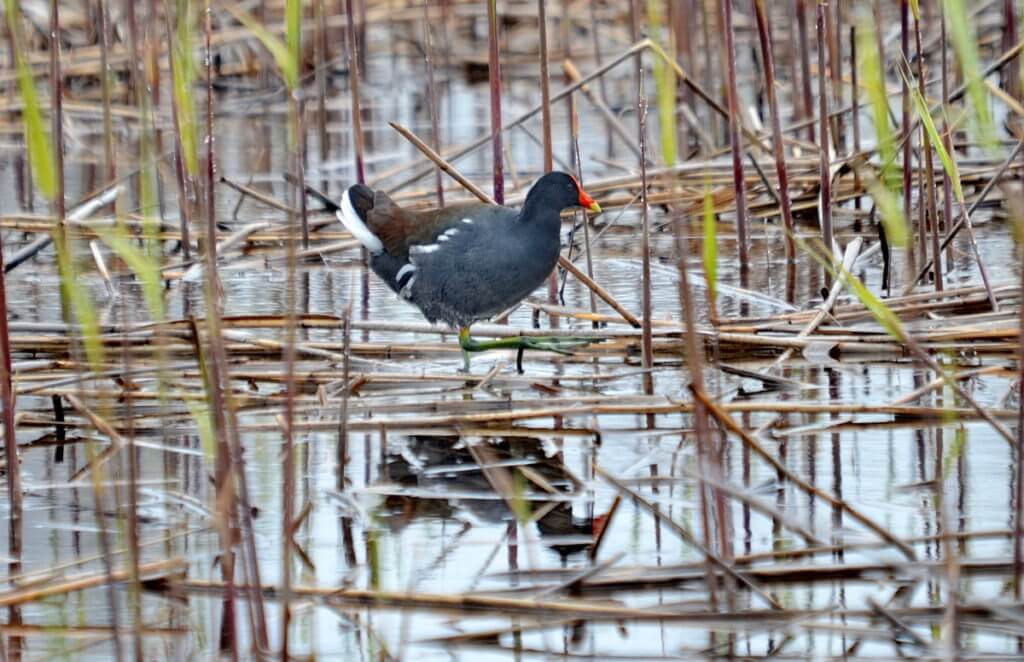
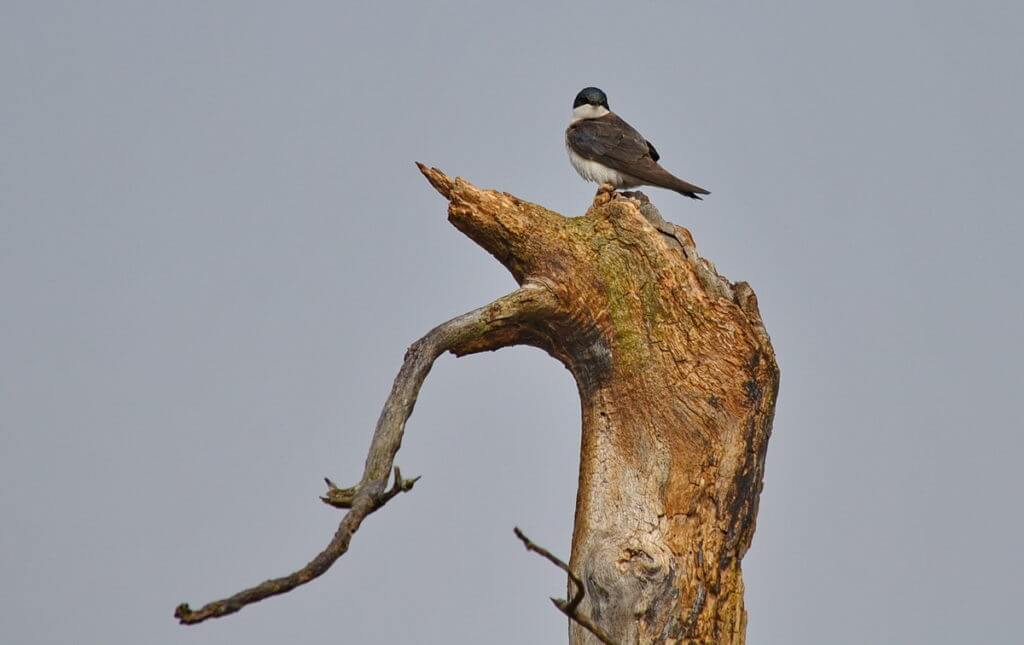
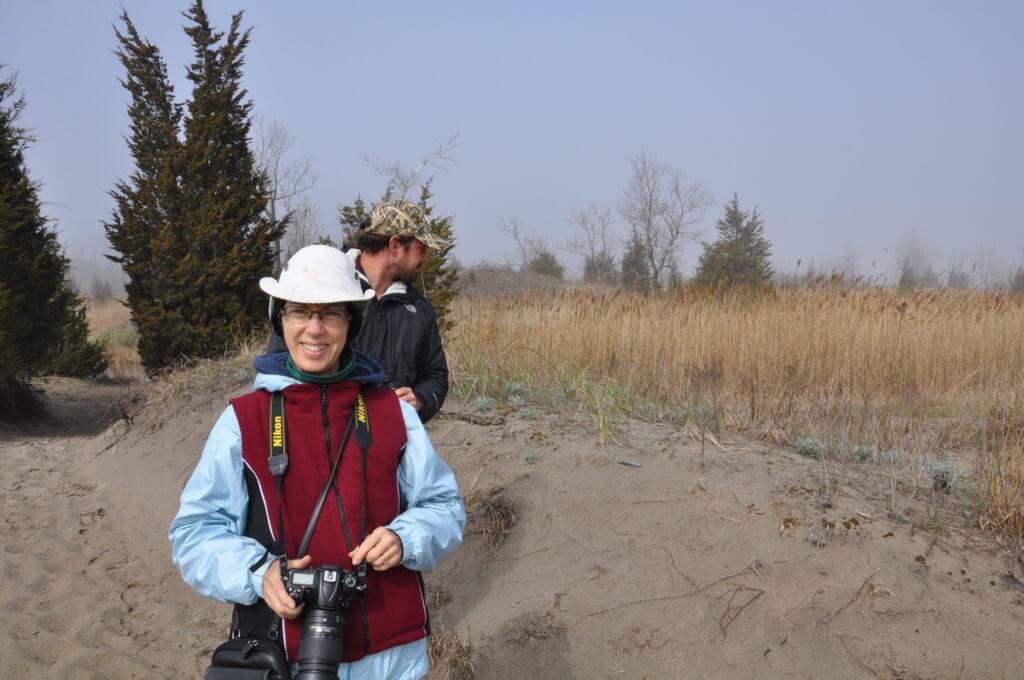
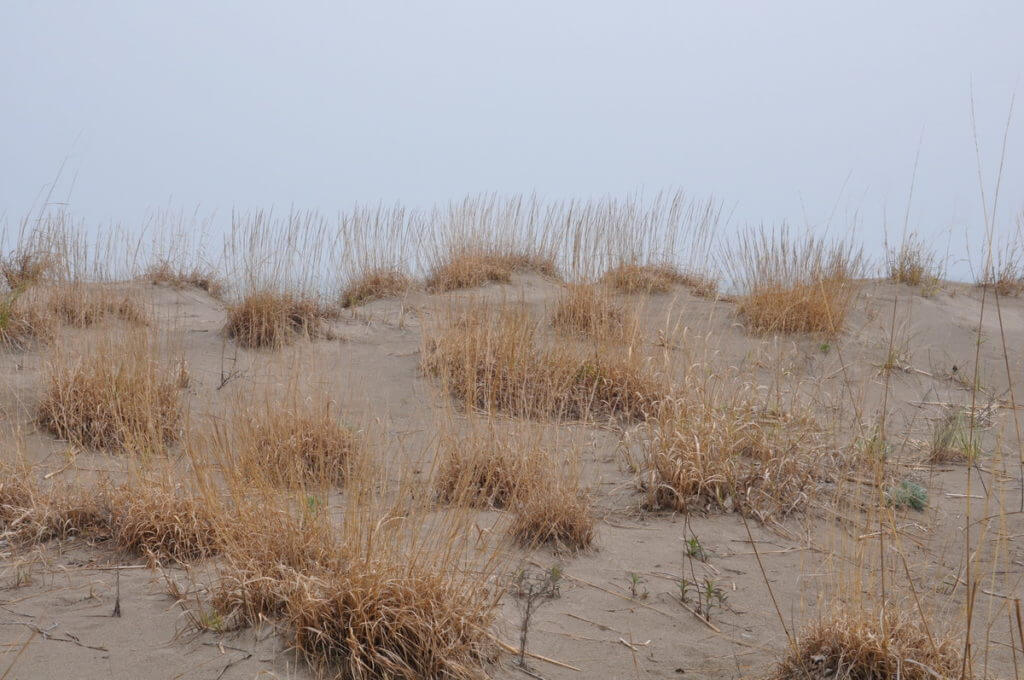
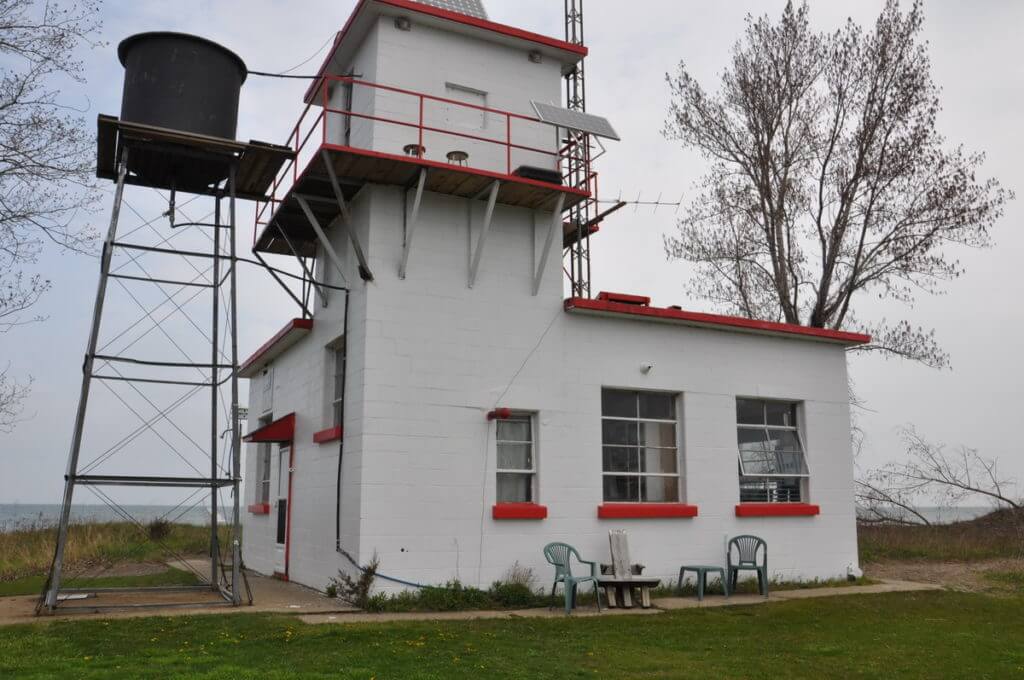
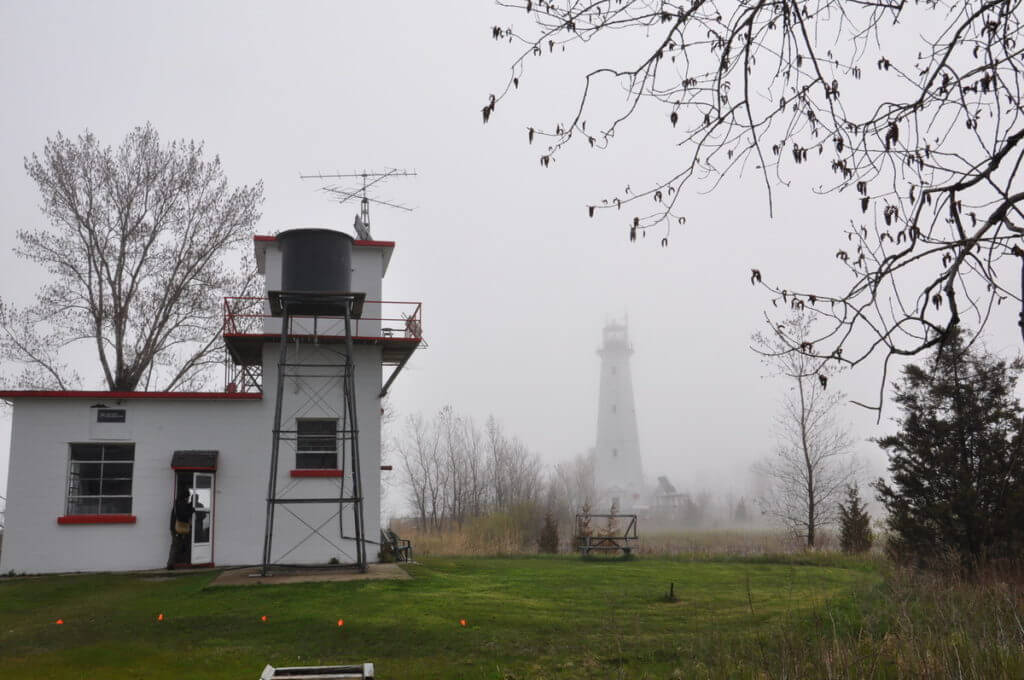
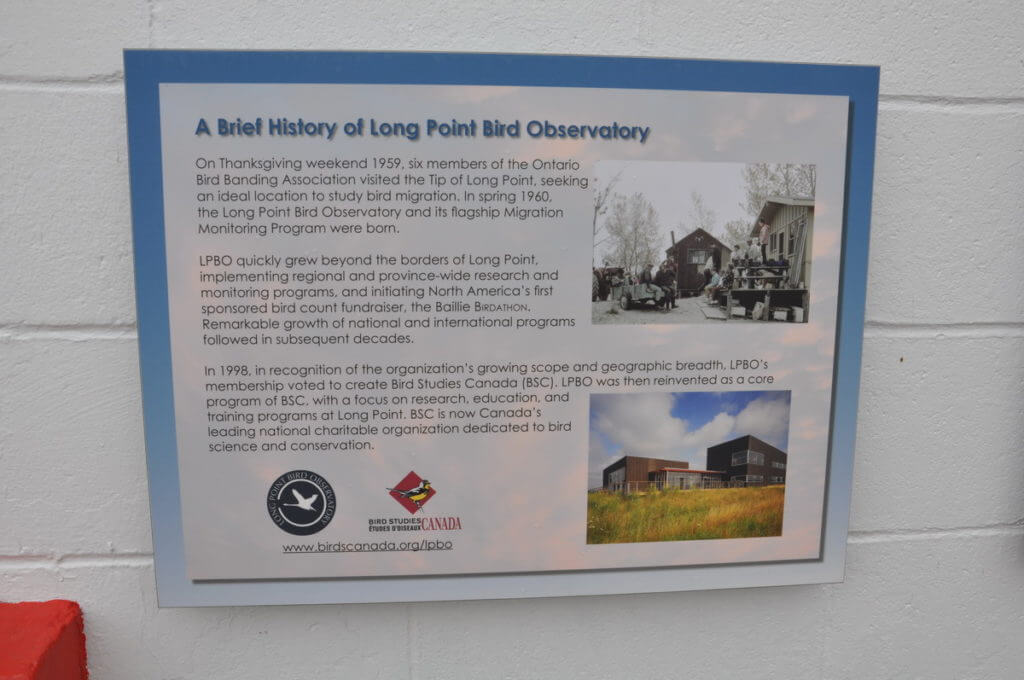
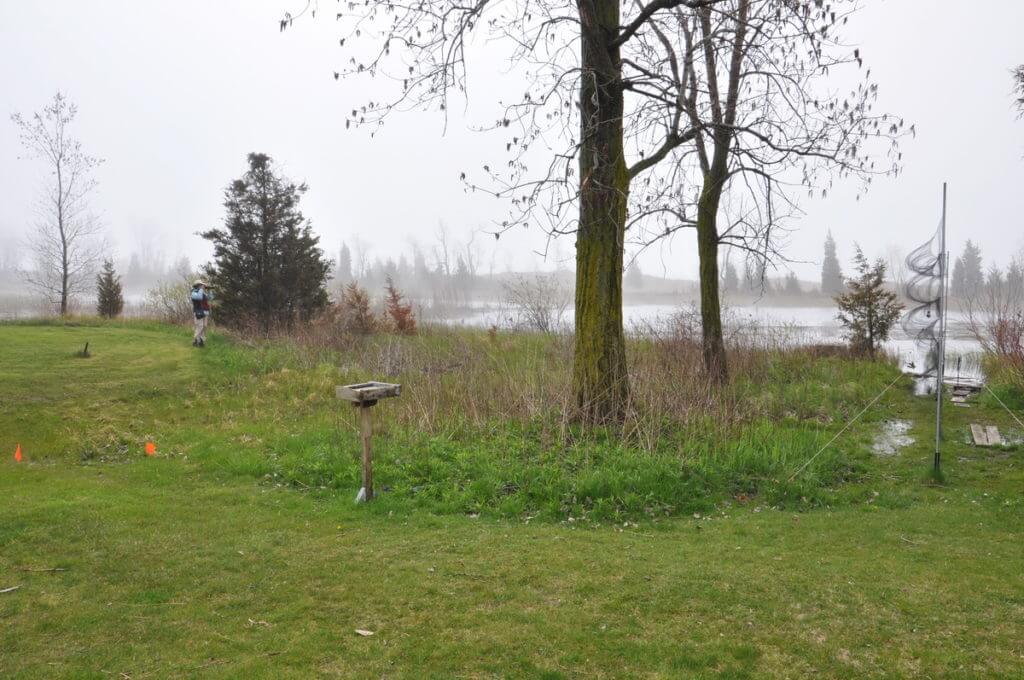
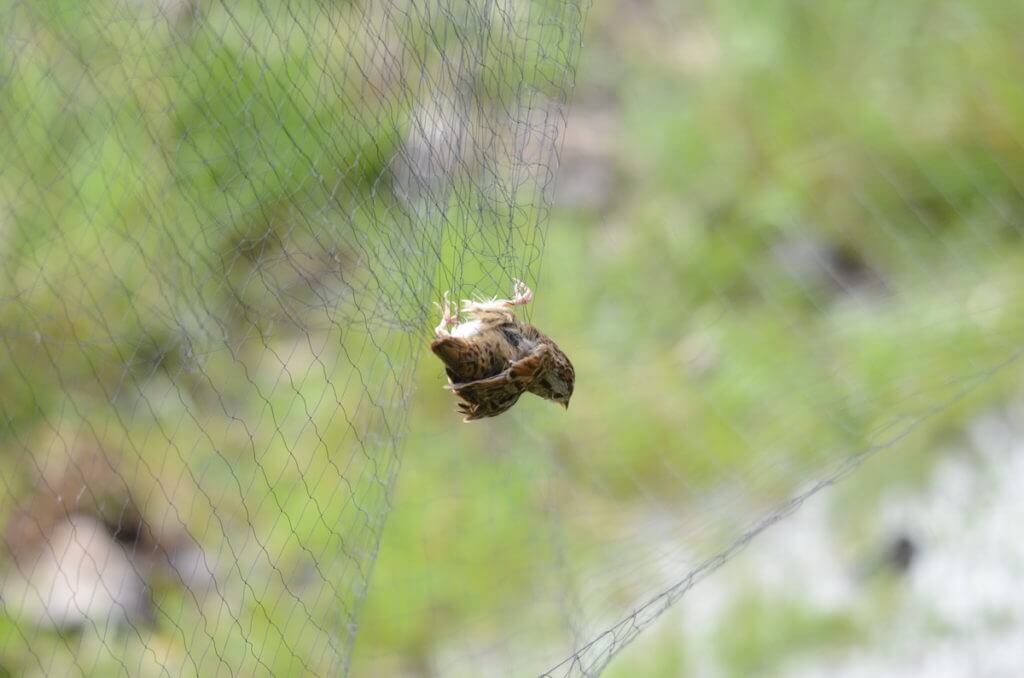
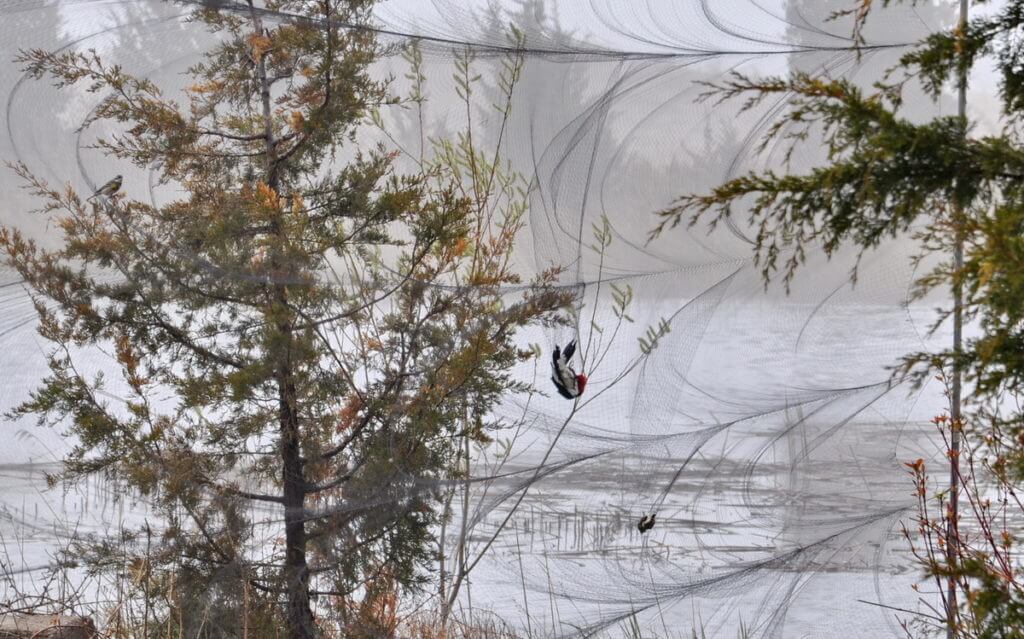
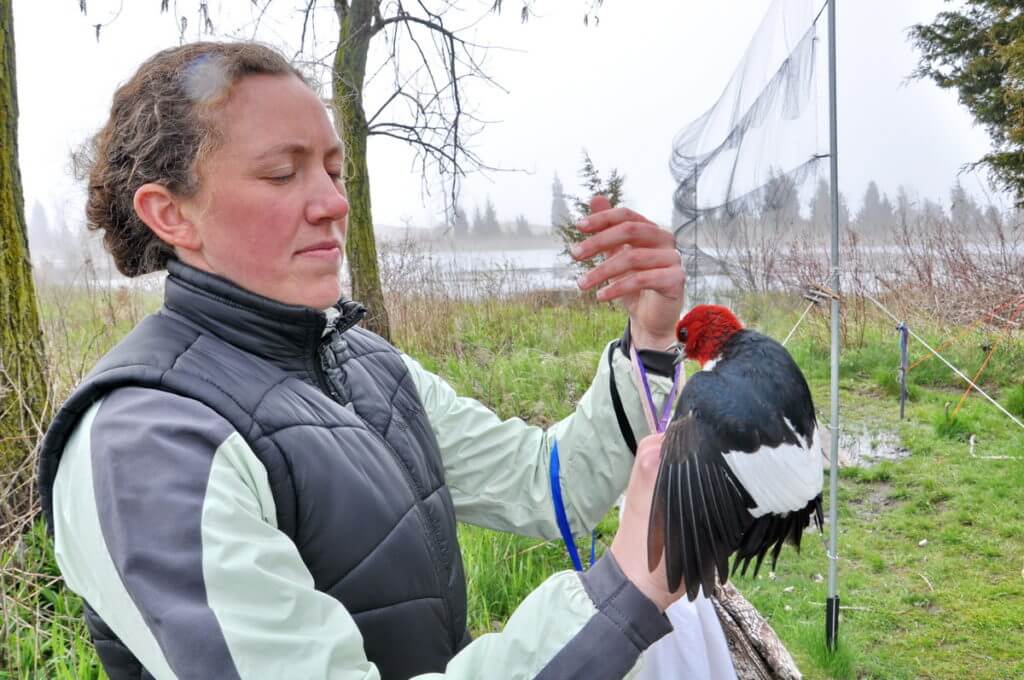
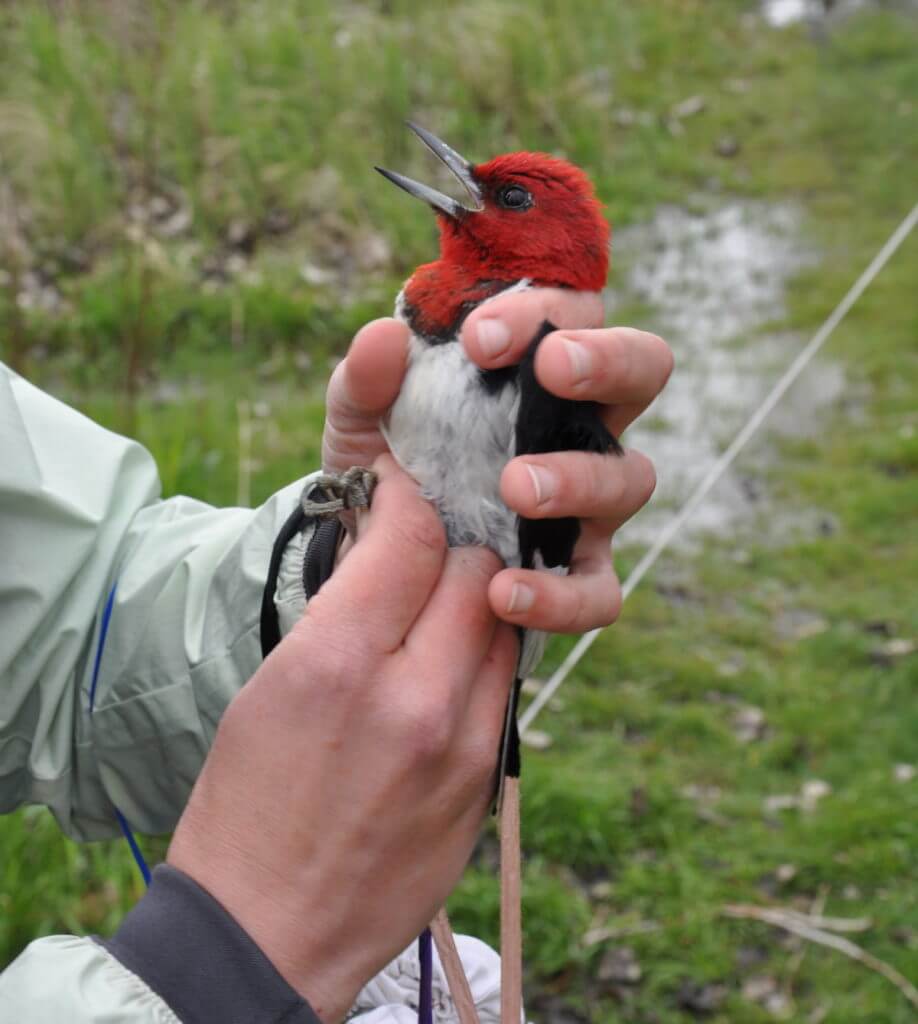
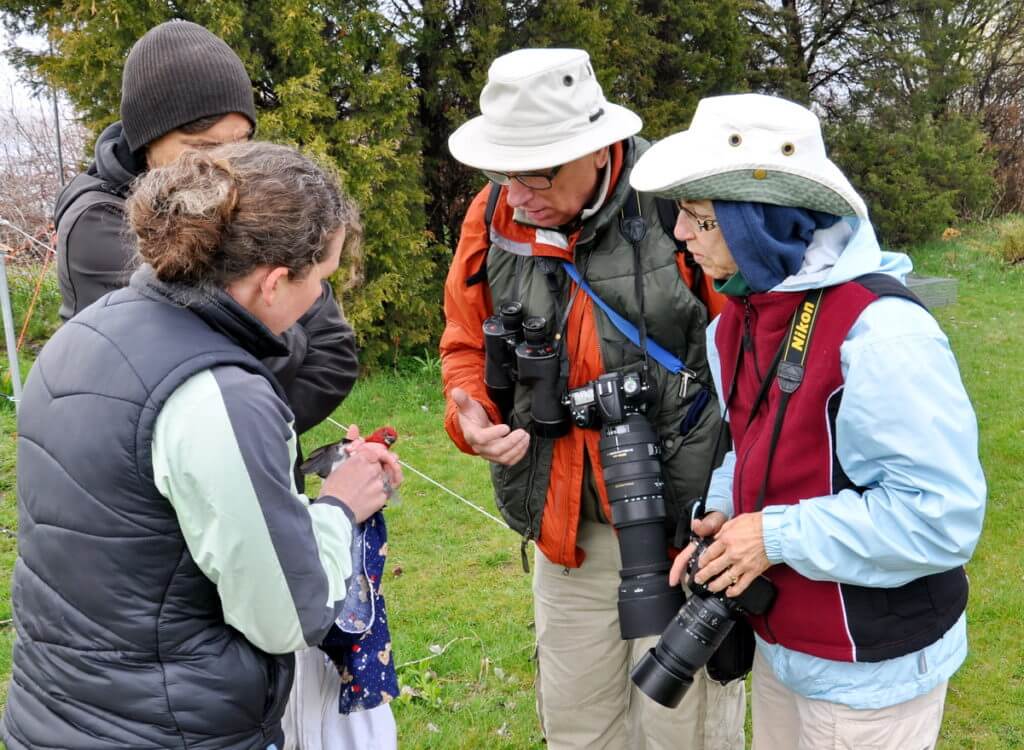
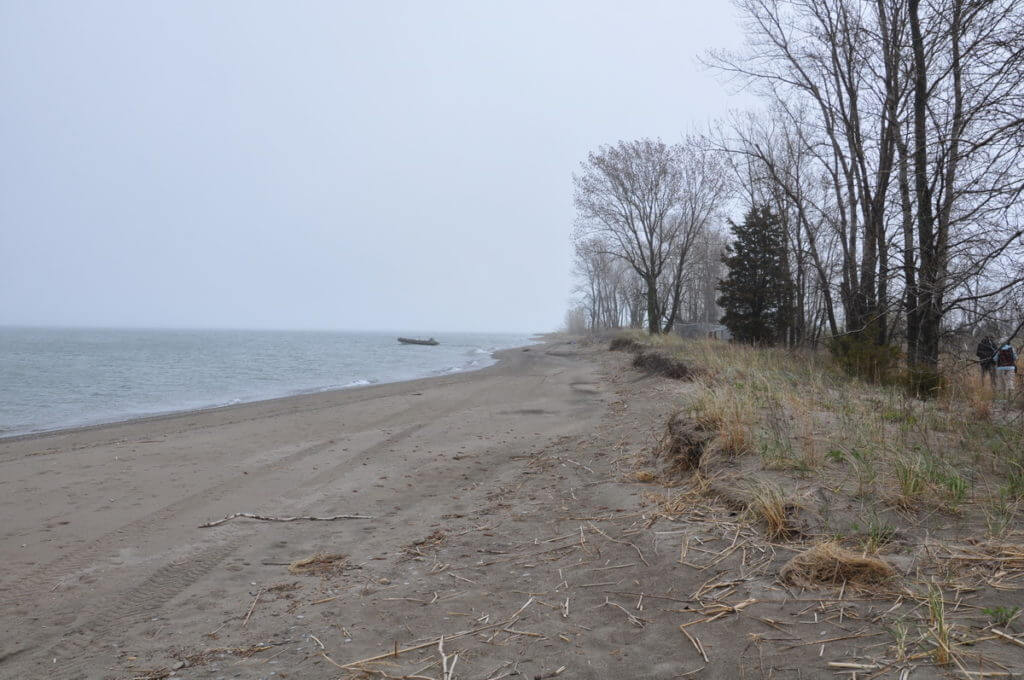
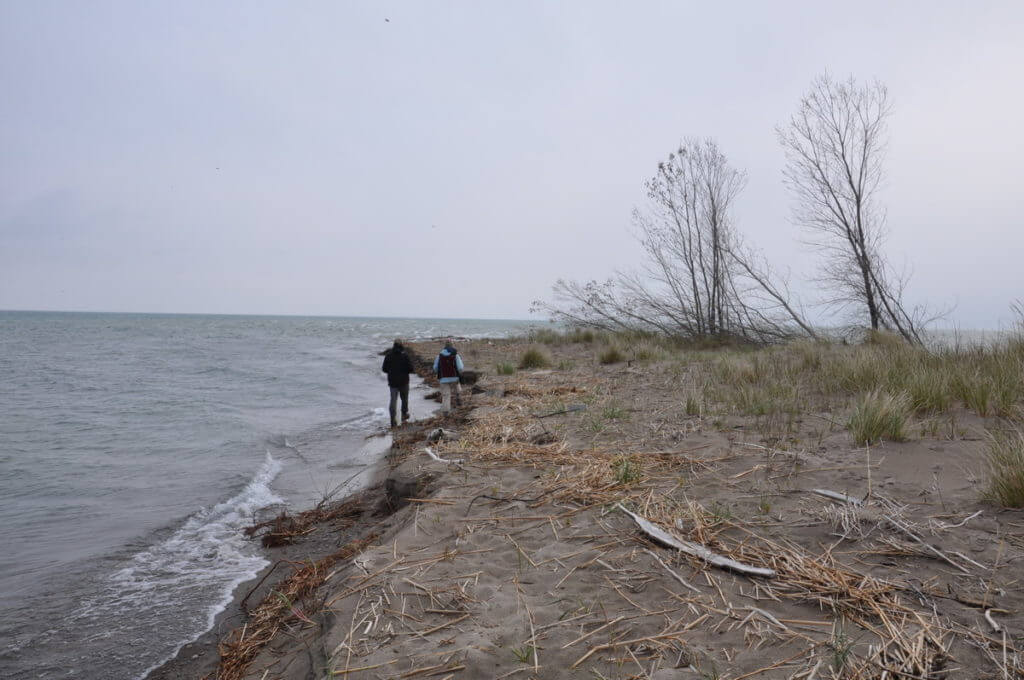
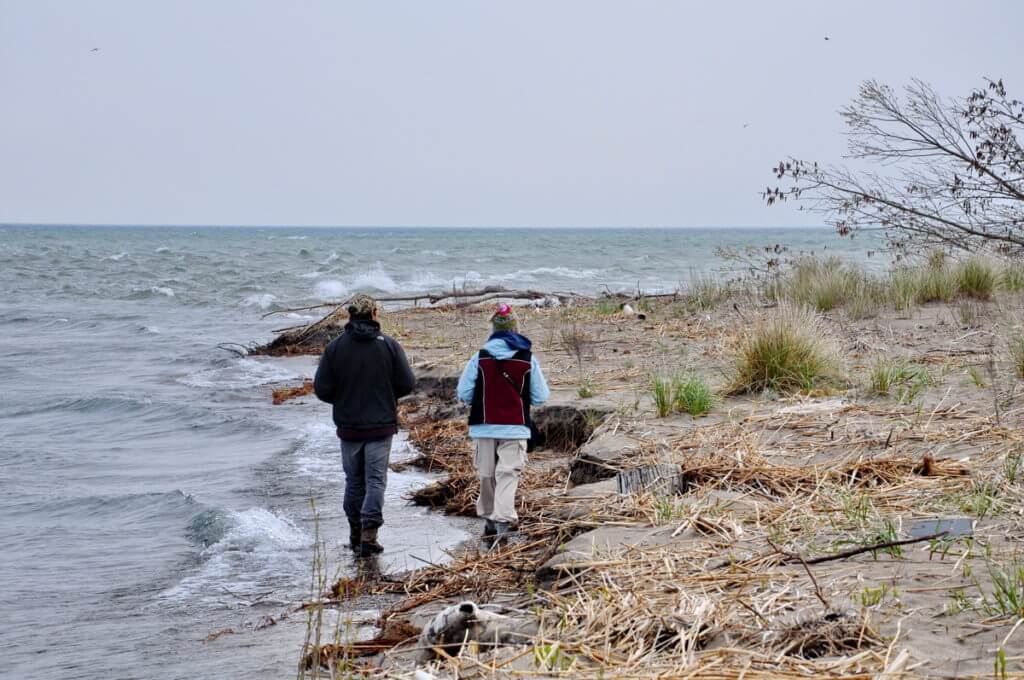
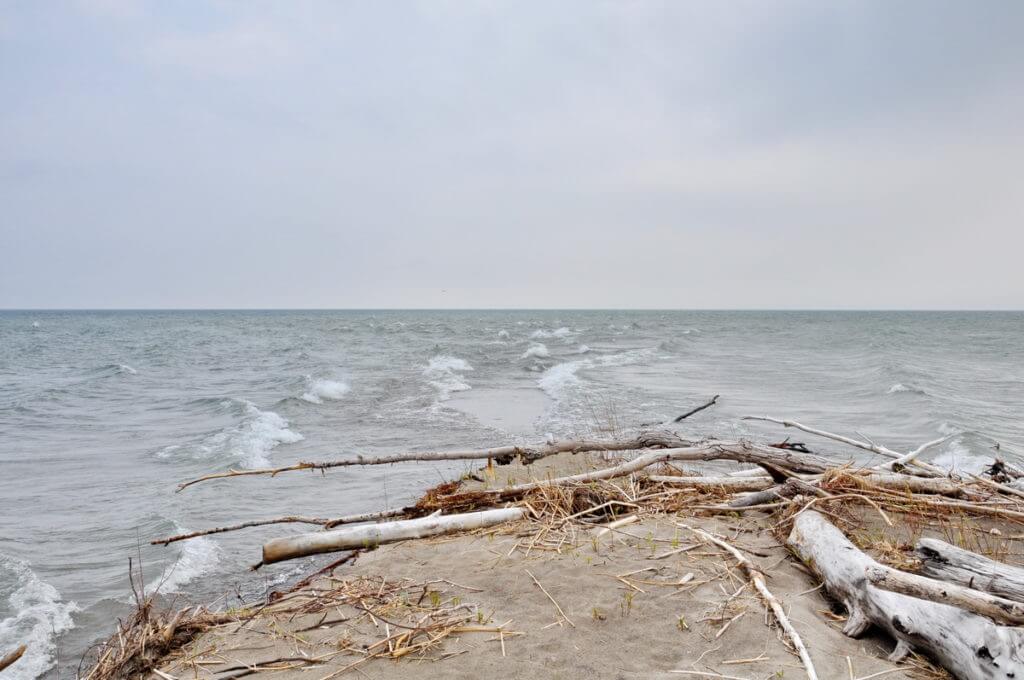
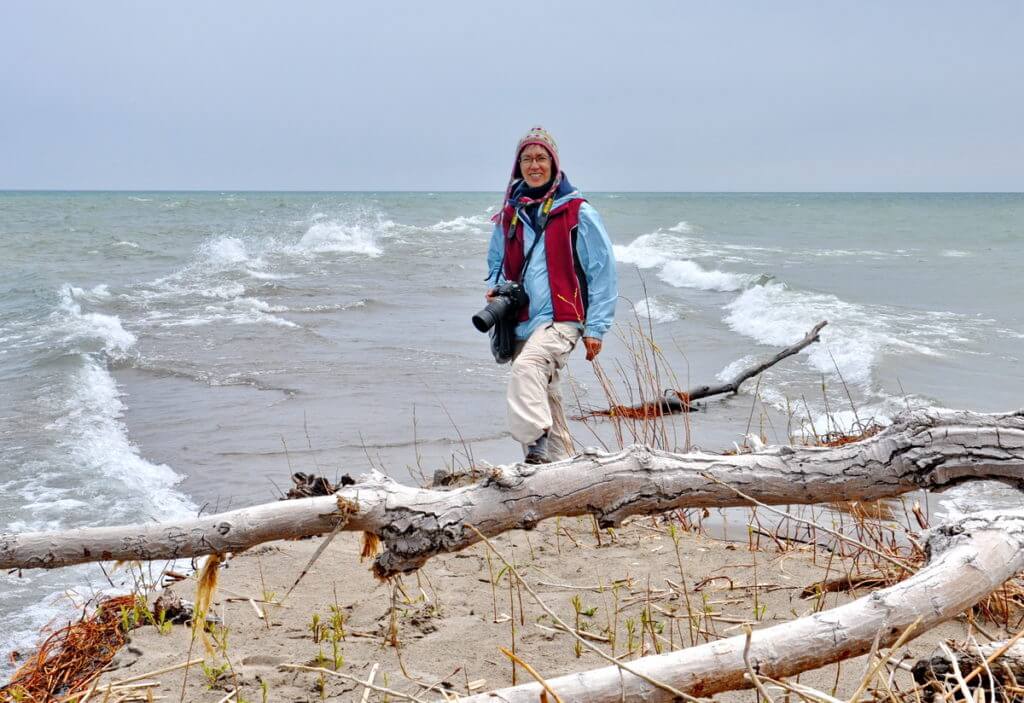
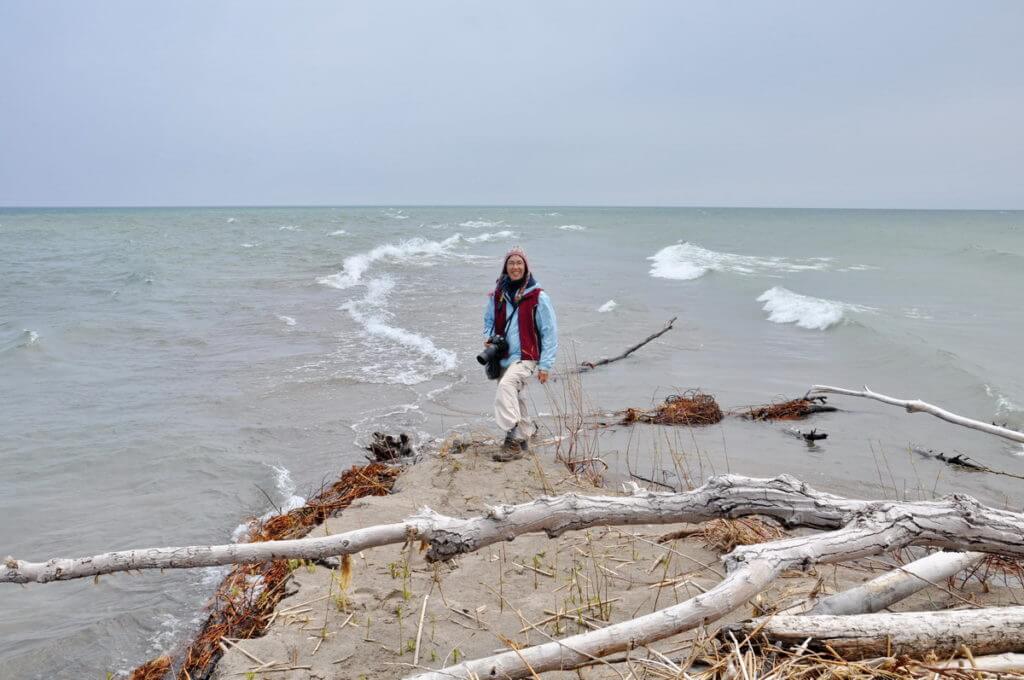
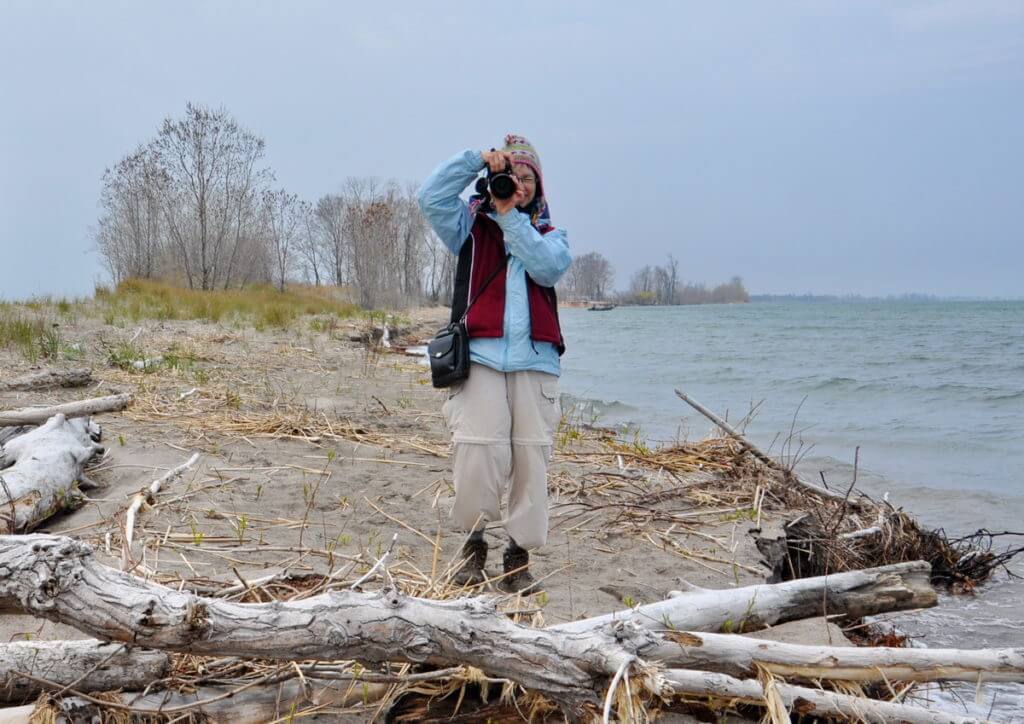
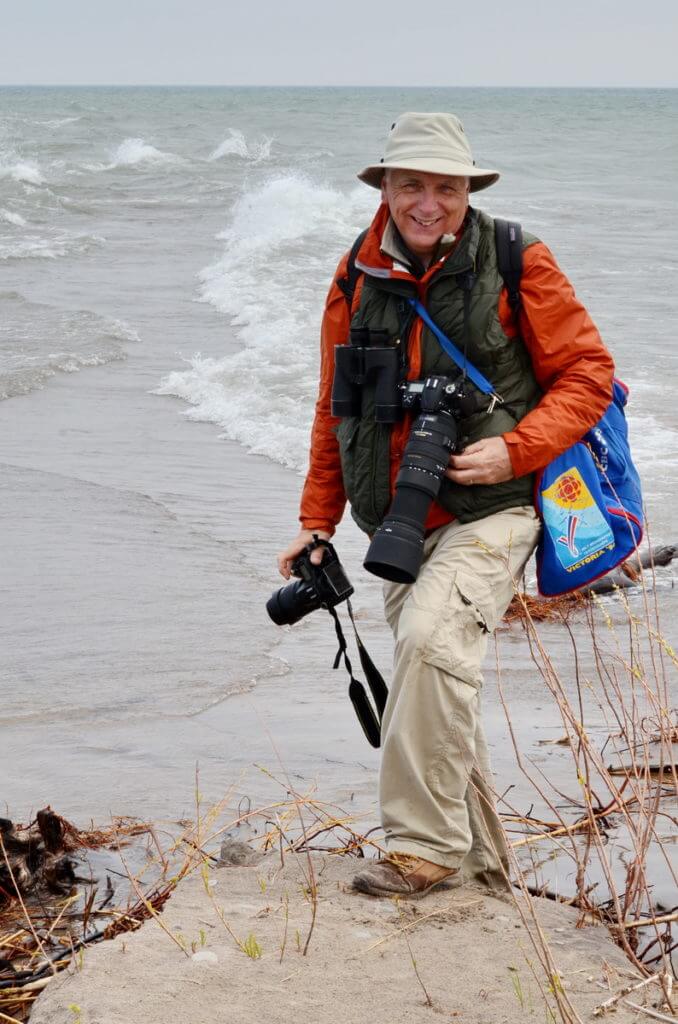
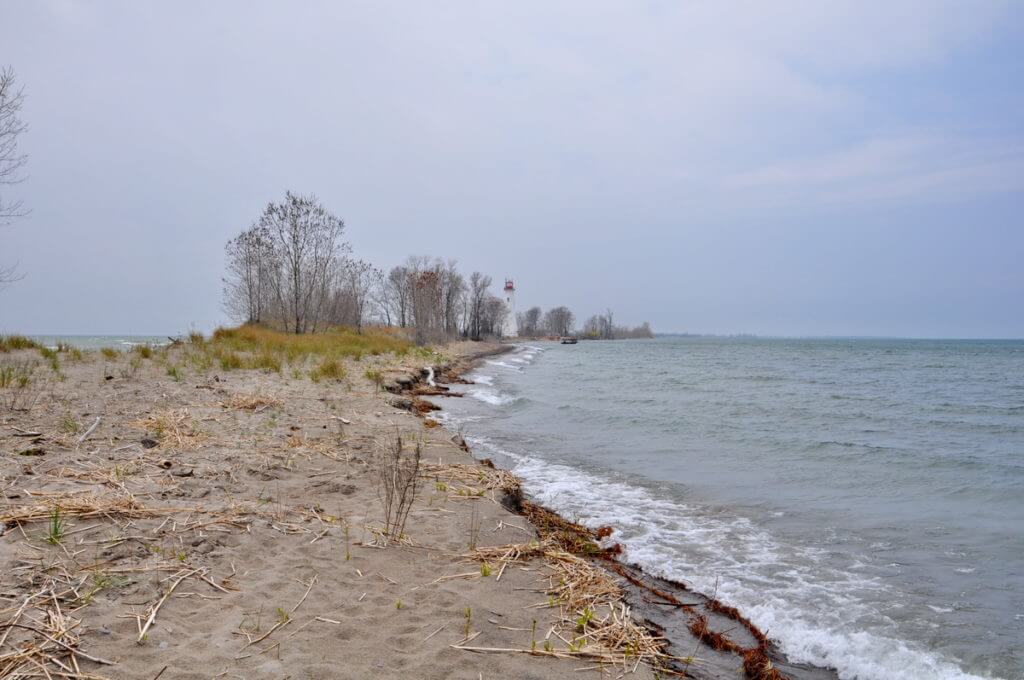
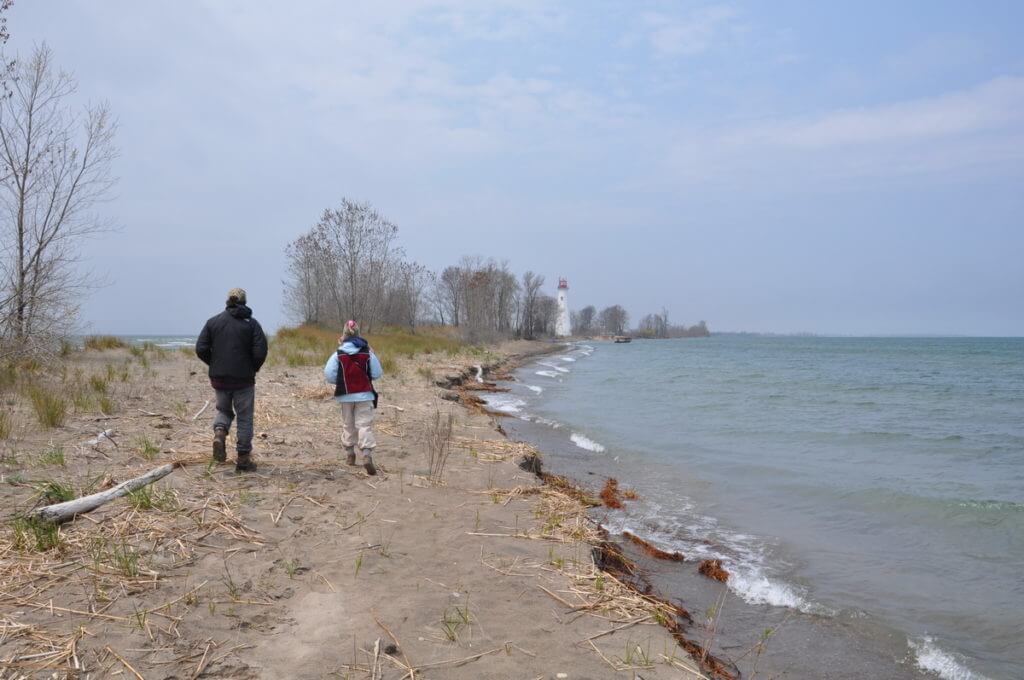
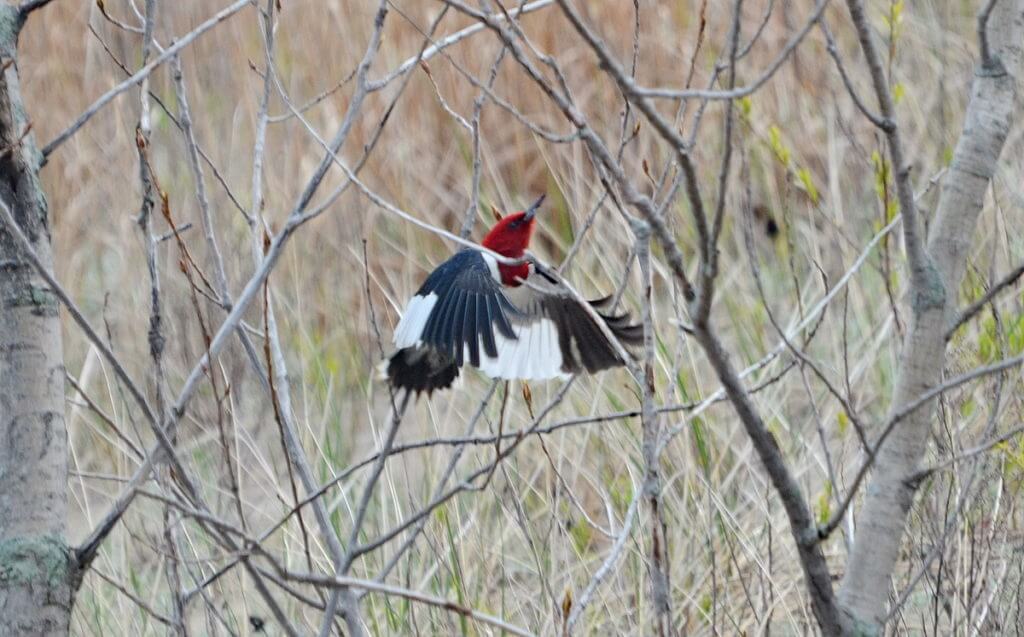
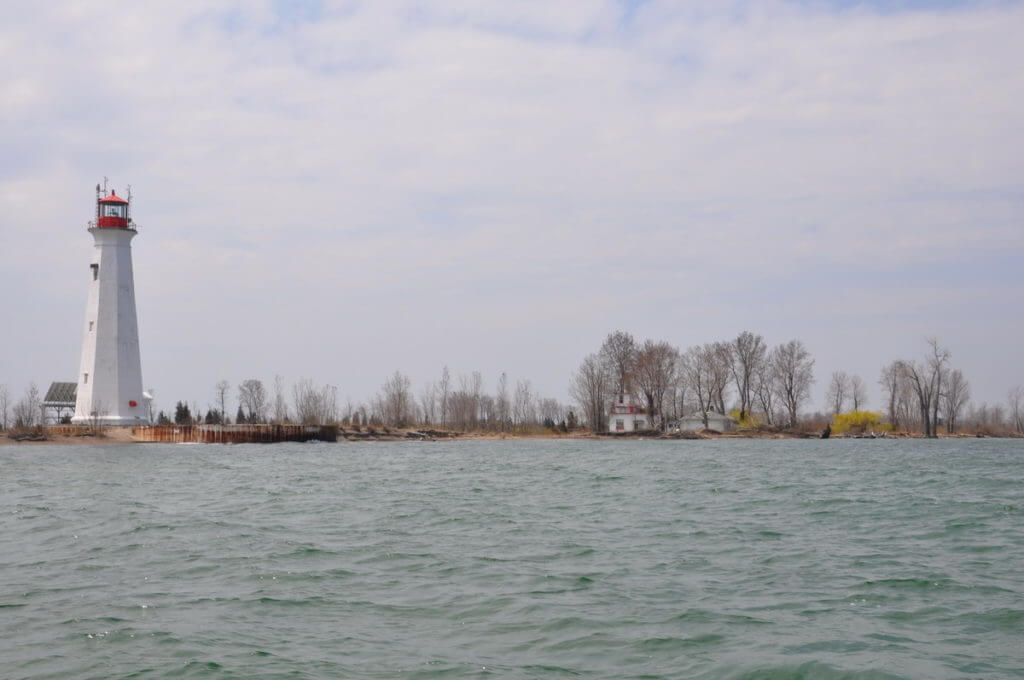
Forgot to mention this website earlier (not sure if you’re aware of them): https://birdscanada.org/
They’re located in Port Rowan, ON, down the road from Long Point, and they seem to do some pretty interesting work. Their February 2019 newsletter talks about “Citizen Scientist Volunteers etc.” I’m sure they’d love to know about your sightings.
Thanks very much, John. We are aware of the Birds Canada organization. I submit our sightings into ebird, an online database that collects bird observations. The data is used by researchers, amateurs and scientists and is monitored by Birds Canada. We visited the Birds Canada location in Port Rowan when we were at Long Point. They do marvelous work. I’ll check out their newsletter.
I had no idea the tip of Long Point was restricted to only authorized access by boat. Thank you for sharing your story, I felt like I was walking thru the foggy dunes and thickets with you
This adventure is definitely going on my bucket list. In addition to birds I’d love to see the reptiles and amphibians of the tip. It would be a dream to do a moth census there as well. I will certainly be looking further into visit options
I have to ask though… will you do it again hoping for a sunnier day?
Hi Gordo. Nice to see you here. I am so glad that we have inspired you to make the trip to the Tip. For your information, there is a cottage at the Tip that is available for rent, but of course, you must bring all your food. Not sure about the availability of water, and not sure about the restrictions relating to the rental. Just thought I’d mention that because it might facilitate a study of the moths and other creatures. Yes, we would do the trip again.
Wow, great pictures as always. It’s amazing what he have in own backyard. I’ve always loved driving the roads in that area back when I had a motorcycle; i.e., before all the real estate development started.
I agree with you. Sometimes we become so fascinated with worlds afar that we forget to explore our own backyards. Canada has so much to offer in terms of provincial and national parks, such a vast array of landscapes and history. Just love our country and everything it has to offer.